
THE MAGAZINE OF THE NATIONAL FRANCHISEE ASSOCIATION, INC. www.nfabk.org 2021 Issue 1 NFA Boosts Leadership Structure with New Opportunities for Franchisees PAGE 22 Battling Coronavirus: Vaccination Policies Need Careful Consideration PAGE 28

Our dedicated franchise team eats, sleeps, and breathes franchised restaurant lending. We’re here for you, today and tomorrow. How may we serve you? New Stores . Remodels Acquisitions . Refinancing Real Estate . Equipment ppbifranchise.com 402.562.1800 Pacific Premier Bank is a registered trademark. All rights reserved. LIKE YOUR FAVORITE CONDIMENT, WE MAKE LOANS A BIT MORE TASTY INGREDIENTS: KNOW-HOW, BUSINESS SAVVY, STRENGTH, RELIABILITY, QSR EXPERIENCE, FLEXIBLE LENDING fancy Ketchup
NFA Editorial Board
Matt Herridge
Executive Editor
mherridge@charton.biz
304-865-2222
Sean Ireland
Editor-in-Chief seani@nfabk.org
Rachel Jackson Managing Editor rachelj@nfabk.org
Savannah Daly Associate Editor savannahd@nfabk.org
Advertising Sales
Jeff Reynolds Director of Business Partner Relations jeffr@nfabk.org
678-797-5163
NFA Officers
Dan Fitzpatrick Chair
Jim Froio
Vice Chair
Matt Herridge Secretary
Steve Keith Treasurer
Anthony Josephson
Second Vice President
Russ Lo Bello
Second Vice President
Andrew Schory
Second Vice President
Christy Williams
CEO
NFA Board of Directors
CANADIAN FRANCHISEE ASSOCIATION

Mike Kitchingman
FLORIDA/CARIBBEAN
Glenn Levins
GREAT MIDWEST
Adam Velarde
Matt Carpenter
Henry Delouvrier
GREAT WESTERN
Nasser Aliabadi
Gary Geiger
INTERNATIONAL HISPANIC FRANCHISEE ASSOCIATION
Guillermo Perales
LARGE FRANCHISEE GROUP
Patrick Sidhu
METRO NEW YORK
Amir Syed
MID-ATLANTIC
Gary Andrzejewski
MID SOUTH
Kevin Newell
Mike Callahan
Brent Northrop
Larry Stokes II
MINORITY FRANCHISEE ASSOCIATION
Camille Lee-Johnson
MOUNTAIN
Amir Allison
NEW ENGLAND
Brek Kohler
SOUTHERN CALIFORNIA
Shirley Humerian
SOUTHWEST
Michael Laird
OHIO RIVER
C.J.
TABLE OF CONTENTS
2021 Issue 1

Timoney Design and Layout KT Graphic Design ktgraphicdesign@gmail.com HEADQUARTERS 1701 Barrett Lakes Blvd. NW, Suite 180 Kennesaw, GA 30144 Phone: 678-797-5160 • Fax: 678-797-5170 www.nfabk.org The National Franchisee Association Inc., comprising regional BURGER KING® franchisee associations, publishes the Flame. Any reproduction, in whole or in part, of the contents of this publication is prohibited without prior written consent of the National Franchisee Association Inc. All Rights Reserved. In keeping with our commitment to the environment, this publication is printed on certified, environmentally friendly recycled paper using eco-friendly inks. Copyright ©2021 • Printed in the U.S.A. ON
COVER With the COVID-19 vaccines getting wider and faster distribution, hope is on the horizon for business conditions to improve. But what policies can and should restaurant owners set with requiring or encouraging employees to get vaccinated? Read more on page 28. Columns 02 You and the NFA Can Make a Difference in 2021 by Dan Fitzpatrick, NFA chair 04 HOPE for 2021! by Christy Williams, CEO Departments 06 NFA Member News 10 Calendar of Events 11 Regional News 14 Legislative News 19 Franchisee to Franchisee Forum 20 Look, Listen, Read 21 One Topic: 10 Facts Directories 18 Support the Vendors That Support Your Association 48 Editorial Calendar and Advertisers Guide Features 12 NFA Regional Associations 15 Spotlight on 117th Congress: Sen. Susan Collins (R-ME) 16 In Memoriam: Jack Muirhead 17 Meet the Newest Members of the NFA Board of Directors 22 NFA Boosts Leadership Structure With New Opportunities for Franchisees by Sean Ireland, NFA director of communications 26 GRC Continues Fight Against Minimum Wage Increase by Misty Chally, NFA vice president of legislative affairs 28 Calling the Shots: What You Should Consider Before Implementing Vaccine Policies in Your Restaurants by Savannah Daly, NFA communications coordinator 30 Franchisees Adopting New Tech to Improve Operations by Sean Ireland 34 Bold Steps Forward to Meet an Evolving Purchasing Landscape contributed by RSI 36 Jim Myers Retires from BURGER KING contributed by the BURGER KINGSM Foundation 38 What Workplace Changes Can We Expect in the First Year of President Biden? by Douglas H. Duerr, Elarbee Thompson 40 Take Control of Your Internal Controls by Stacy Smith, Mize Restaurant Group 42 Why Do You Do What You Do? by Dennis Snow, Snow & Associates Inc. 44 Measure Progress and Consider Adjustments by Dan Coughlin, The Coughlin Co. 46 Making the Right Choices: Five Observations About Intuitive Vs. Analytical Decision-Making by Laura Stack, The Productivity Pro®
THE
FROM THE CHAIR
You and the NFA Can Make a Difference in 2021

It seems just a few days ago we were waving goodbye to 2020, and with enthusiasm welcoming 2021, and now we are on the doorstep of spring. I would like to comment on three items that will require the focus of all our franchisees.
Political Landscape
It should be obvious to all that the political landscape, as much as we would like to ignore it, certainly has an impact on our business prospects. There are actions that the new administration has taken and multiple proposals pending on Capitol Hill that, taken together, are harmful to our businesses on an operating basis and our ability to generate cash flow and, ultimately, are a huge burden on their value. I repeatedly remind members that we operate as BURGER KING® franchisees to achieve a return on our investment, to provide for our teams, and to protect and enrich our families. In this respect, being a BURGER KING franchisee is “personal.” The success of our businesses matters very much to all that we care so deeply about –namely, our teams and our families.
It is obvious to many that the actions that some leaders are considering are harmful to the prospects of small businesses and, in this case, our BK® restaurant franchise companies. I think most franchisees understand that foundational to a strong America are a vibrant economy, a prosperous citizenry and strong family-owned businesses like ours. Over-regulation, a growing and more active government bureaucracy, and increasing taxes are not a formula for general prosperity – rather, they are a recipe for financial duress for all.
Our government budget is bloated and its deficits have reached an all-time high and continue growing. Who will repay this debt? When will this debt be repaid, and how will we keep our companies strong and vibrant when we increase spending recklessly with little attention paid to what we leave our children, grandchildren and, likely, our great-grandchildren? Although the solutions to these real problems are not within our grasp presently, it’s clear that if we remain silent and inactive, our voices
will not be heard and government leaders, both elected and nonelected, will continue to forge along this perilous course.
It may seem well into the future, but by this fall, candidates for House and Senate offices will begin declaring for what will likely be a contentious election in the fall of 2022. The current control of both houses of Congress and the White House has given rise to unprecedented governmental intervention. The only way it can be stopped is to change those elected leaders, specifically those serving in the House and Senate. Elections are always balanced on the strength of the candidate, the clarity of the articulation of issues and, unfortunately, money.

The time to act is now! Our BURGER KING Franchisee PAC needs you! I reiterate your NFA board’s recommendation that each franchisee contributes $100 per restaurant to the PAC this year, as well as in 2022. To the extent we achieve these contribution levels, we would go into the fall elections of 2022 with nearly $1.5 million in our PAC. This would be a formidable, powerful and consequential fund. The entire House of Representatives and almost one-third of the Senate will be chosen in 2022. Many races will likely result in the incumbent being reelected regardless of the money, time and effort invested. Conversely, there are dozens and dozens of seats that will be closely contested and will be decided on relatively thin margins, with those working the hardest and raising the most money prevailing. We have a chance to turn things around, but it cannot be done without your involvement and help.
Hand-Breaded Chicken Sandwich
Now, with respect to our current business prospects, we are rolling out a new chicken product that we have internally called the best-in-class hand-breaded chicken sandwich. This new product portends to be the best chicken sandwich that our brand has ever served.
I want to underscore that this product’s development has involved many franchisees across the system with

respect to its development, innovation and testing, right up to the present moment. Many franchisees have taken the time to work with Burger King Corp. (BKC)’s management team to assist in ensuring our best possible introduction. I particularly want to recognize Shane Jacobs, Jim Froio, Todd Schuster, CJ Fitzpatrick, Joel Neikirk and his team at RSI, Eric Goldhersz and Ellie Doty of BKC and all their teams, and especially Mike Salem for tireless work to get this product right.
by DAN FITZPATRICK
I urge you to ensure the most careful possible attention to every detail in training and implementation of processes and procedures with this product. It’s clear that if our procedures are followed, the product will be outstanding, and it is equally clear that if our procedures are not followed, we will disappoint our guests. The choice now is up to each operator to do their best. I am confident you will be impressed with this product as it gets introduced to your restaurants and guests. Here is to a successful rollout and a corresponding increase in our sales and cash flow!
NFA LEAD Conference
Finally, I am excited to remind you of the NFA LEAD Conference, which will be held June 8-11 in Las Vegas, Nevada. A team of franchisees, led by Andrew Schory, has put together an agenda that will aid you in sharpening leadership and development skills in our businesses. Our last LEAD Conference in 2019 was a remarkable success, with many franchisees providing testimonials that it was one of the most impactful conferences ever for the betterment of their teams. Please look for more information on the conference, and if you have not yet registered, please do so today.
Continued best wishes and stay safe!

2 | 2021 ISSUE 1
n
SAVE
June 8-11 | Cosmopolitan, Las Vegas
WHO SHOULD ATTEND: Franchisees | ARLs | System Suppliers

THE DATE! 2021 NFA LEAD Conference
FROM THE CEO
HOPE for 2021!
We did it! We made it through what is likely the most challenging year most of us have ever experienced. 2020 was filled with many emotions, and honestly, I hope 2021 is the same. By this I mean that I HOPE members can begin to breathe a sigh of relief and return to normalcy in your professional and personal lives. I HOPE you experience emotions of happiness, relief, excitement and enthusiasm as we continue to conquer 2021.
Speaking of excitement and enthusiasm, the National Franchisee Association (NFA) and Elevanta have remained focused on providing our members with opportunities to benefit you and your businesses as we progress in 2021. On the Elevanta side, we recently announced our 2021 health insurance renewal at a record-low premium increase. Employers who participate in Elevanta Health will enjoy an average renewal rate increase of only 1%. More exciting, over 64% of members who participate received a ZERO percent rate increase. After such a challenging and difficult 2020, it was very important to Elevanta and our board of directors that we offer the best renewal terms possible this year.


Elevanta Health has maintained single-digit rate increases for the past eight years. Members have come to rely on the stability Elevanta Health provides, and after a year like 2020, stability is more important than ever. You may recall that Elevanta returned $2 million to members last year at the height of the pandemic in the form of premium deferrals and participation refunds. This is what your association program should be doing for members in times of need, and it is why we developed programs specifically for NFA members. We are your calm in the storm and want to be your trusted partner in the good times and bad. We truly HOPE members who do not currently participate in the health program will consider allowing us to quote your next renewal.
While 2020 was full of bad times, 2021 is well positioned to be a pivotal year for the NFA, Elevanta and BURGER KING®
franchisees. While Elevanta is focused on the member services side of the business to help members save on key expenses while also providing robust programs and services, NFA is focused on traditional association services, including educational programs. 2019 was a banner year for NFA as we launched our inaugural LEAD (Leadership, Exploration and Development) Conference. We were very disappointed when we had to cancel the event in 2020. We are excited to host the second LEAD Conference June 8-11 in Las Vegas, Nevada, at the Cosmopolitan hotel.
Significant planning and preparation has been made by your NFA and Elevanta staff as well as our franchisee-led LEAD Committee. Chaired by Andrew Schory, this committee has developed beneficial topics to help your above-restaurant leaders (ARLs) excel in running the day-to-day operations in your businesses. Topics range from communications, cultural retention and local store marketing with a focus on new digital technology to sessions led by RSI and Burger King Corp. We are excited to gather in person in a safe environment to focus on running your businesses smarter and more efficiently. Attending LEAD will no doubt prove to be a motivating and energizing opportunity for your ARLs, who likely worked tirelessly over the past year to adapt to the difficult circumstances created by COVID-19.
LEAD will provide opportunities for franchisees to gather and hear from NFA leadership on the most important initiatives going on in the BK® system and NFA. Topics include a review of the annual franchisee survey and a session on managing minimum wage increases as well as reports from committee chairs.

New this year is an opportunity for human resources professionals to attend LEAD and participate in sessions developed specifically for them. This is the launch of a forum for the franchisee community’s human resources teams to begin to network with one another
by CHRISTY WILLIAMS
and share ideas as they manage the HR responsibilities for the franchisee community. Given the ever-changing employment rules and labor issues, this is sure to be a beneficial program for this group that can continue long after LEAD is over.

Finally, many of our vendor business partners have already committed to joining the NFA in Las Vegas to showcase their current products, programs and initiatives. LEAD will be the first time a gathering of this size has occurred in the BK system since the fall of 2019. We are appreciative of these business partners and encourage all franchisees to attend and bring your restaurant management teams to engage in this much-needed opportunity to network with these key partners.
You can see more about the LEAD Conference and register through the link on the NFA website, www.nfabk.org.
In closing, as I began, I truly HOPE 2021 contains a different range of emotions for members over the coming months. HOPE is a strong emotion that denotes excitement and a positive outlook on the future. HOPE got us through 2020 and will certainly make our 2021 one of the best years yet! n
4 | 2021 ISSUE 1

GDK Development Inc. Honors Two Longtime BK Employees

Two employees received recognition from GDK Development Inc. as they retired from BURGER KING® restaurants after many years of service. GDK Development Inc., owned and operated by franchisee Gene Welsh Jr., has 16 restaurants across the mid-Atlantic. The organization celebrated two managers, Barb Goshorn and Jan Catherman, in December for their outstanding service.
Goshorn was a manager and certified restaurant trainer at the BK® in Mifflintown, Pennsylvania. She has been working with GDK Development for 22 years. During her two decades of service, she trained many managers and prepared them for success.
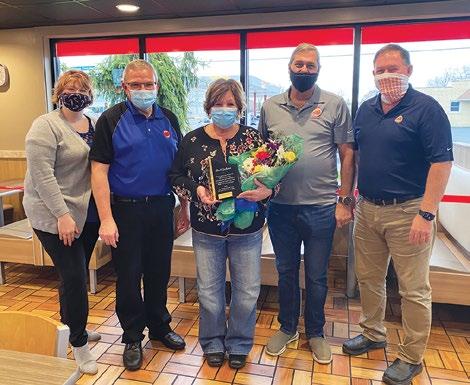
At the end of 2020, the team hosted a celebration for her, complete with cake, flowers and a gift card. She also received an engraved plaque honoring her years of service. “Barb has been an asset to our team over the past two decades,” said Kristy Welsh Renn, daughter of franchisee Gene Welsh Jr. “She has always been very well-respected by her team.”
Goshorn was also known by her team members for maintaining a high standard of success. Her team will remember her extreme attention to detail and how she
worked hard to maintain restaurant profitability. She even once won an all-inclusive trip to Cancun, Mexico, for being the best restaurant on the East Coast.
Upon her retirement, Goshorn is looking forward to spending more time with her husband, Terry, relaxing at their hunting cabin. But she still plans on helping in GDK Development’s restaurants on a part-time basis.
A celebration was also held for Jan Catherman, who was a manager at the
QDI Founding Partner John D. Fitzpatrick Passes

John Denis Fitzpatrick, 69, a longtime BURGER KING® franchisee with Quality Dining Inc. (QDI), died Dec. 26. Fitzpatrick, whose brothers and son continue to operate BK® restaurants and other concepts in Michigan, Indiana and Florida with QDI, was a founding partner in the company.
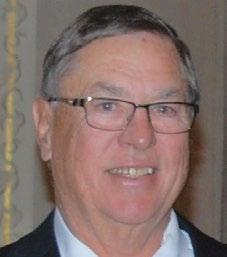
Fitzpatrick was an older brother of QDI co-founders Dan, Jim and Jerry Fitzpatrick and the father of CJ Fitzpatrick, now a senior vice president with the company leading QDI’s Florida-based BURGER KING business. John Fitzpatrick was a key leader as the organization grew from its first two restaurants in the suburban Detroit market in 1980 to operating 200 restaurants, including locations of the Chili’s and Papa Vino’s
brands in addition to BK, in seven states with more than 9,000 employees.
Fitzpatrick was also the franchisee of BURGER KING restaurants in the Little Rock, Arkansas, market until 2014. He retired from QDI in 2015.

He and his late wife, Joanne, who died in 2002, were married for 30 years and had six children, including Christy, CJ, Lisa, Rebecca, Elizabeth and Timothy, and 17 grandchildren. He was known by his family and friends for his good humor and quick wit and was a lifelong Detroit Red Wings fan. n
restaurant in Sunbury, Pennsylvania, for 35 years. Catherman was known by her employees and her customers for her outstanding people skills.
“Jan was also certified in restaurant training and through the years trained many of our general and assistant managers,” said Jim Backes, chief operating officer of GDK Development. “She mentored them to have high standards in operations and to keep a focus on our guests.” Catherman played an integral role in developing the Sunbury restaurant and will be missed by the team.
“I had the privilege to work with Jan, and she is one of the best managers,” said Renn, who was just 5 years old when she first met Catherman. Cake, gifts and a plaque were also presented to Catherman on one of her last days of work as a token of appreciation.
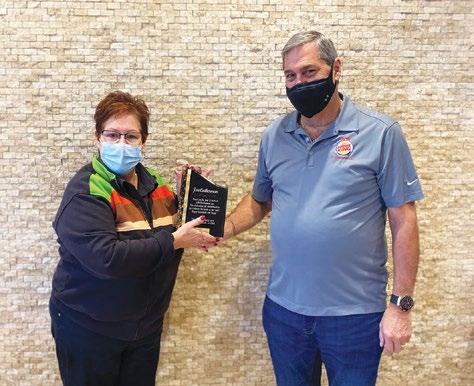
The GDK Development Inc. staff recognizes that retaining great managers like Goshorn and Catherman has been one of the keys to the organization’s success. It’s important to show appreciation for employees who make the company the best it can be, and the team looks forward to developing and celebrating more outstanding leaders in the future.
“Jan and Barb will be hard to replace,” said Backes, “but the training and leadership they both contributed to our organization will provide results for years to come.” n
6 | 2021 ISSUE 1
MEMBER NEWS
Jan Catherman was presented with a plaque upon her retirement after 35 years with the company.
Barb Goshorn was honored for 22 years of service with the BK brand. She still plans on helping at GDK Development restaurants now and then during her retirement.
Rackson Restaurants Opens Two New Locations in New Jersey
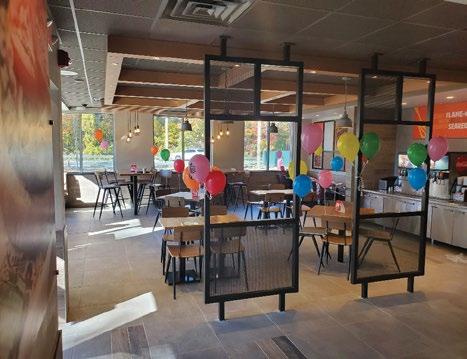
Rackson Restaurants LLC, operated by franchisee Christopher Johnson, started 2021 by celebrating the opening of two new restaurants in its home state of New Jersey. The two new locations in Haddon Township and Pennsville bring the company to 56 total BURGER KINGS®.
Due to COVID-19 restrictions, the company was unable to host grandopening celebrations for the restaurants but plans to do so in the spring. The Pennsville location was the first double drive-thru that Rackson Restaurants brought to the area.

“Our first double drive-thru brought an exciting challenge. We experienced growing pains, but with help from Burger King Corp. and the knowledge we gained learning the double drive-thru, we were prepared for the double drive-thru at the Haddon Township restaurant,” said Johnson.
The company is excited to bring new

restaurants to the vibrant, welcoming communities. Two existing general managers, Natasha Lewis and Edwin Chogollo, were transferred to the new restaurants. Rackson is proud of its leaders and the ability to place these outstanding managers in the new locations. “Our No. 1 leaders are the reason we have these stores,”
noted Johnson. “All of this was possible because of the quality of our RGMs.”
Rackson Restaurants is excited to reach the members of the community and provide fresh food, fast service and a great guest experience. It is looking forward to bringing even more restaurants to communities in New Jersey in the coming year. n



2021 ISSUE 1 | 7 MEMBER NEWS
Rackson Restaurants welcomed its first two double drive-thrus to new restaurants in Haddon Township and Pennsville, New Jersey.
It would have been easy to take a break. Hit pause.
Wait until next year.
It would have been even easier to quit altogether – blame a pandemic that has rocked the quick-service restaurant (QSR) industry to its core.
But “quit” is not in Dan Fitzpatrick’s DNA.
Thanks to his sheer inability to throw in the towel, a decades-old coupon book fundraiser Fitzpatrick started 39 years ago is taking on new life and thriving.
Fitzpatrick, NFA chair and CEO of Quality Dining Inc. (QDI), began the YOU CAN LEND A HAND™ program in 1982, with a goal of providing that “little extra” that could make a profound difference and better enable kids in Catholic schools to succeed.

The fundraiser was based around coupon books designed, printed and distributed by Quality Dining to Catholic schools and BURGER KING® restaurants operated by QDI in northern Indiana and southwest Michigan. Books sold for $3 each throughout the month of February and contained approximately 20 coupons to BURGER KING and other restaurant concepts owned and operated by QDI, as well as businesses such as the local minor league baseball team and indoor ice skating at the nearby University of Notre Dame.
Schools keep a large portion of the proceeds from books sold, amounting to more than $11.5 million over the years. Funds are used for upgrades to classroom and playground equipment and computer hardware and software and for capital improvements.
“This has never been a handout,” Fitzpatrick said. “Instead, YOU CAN LEND A HAND is about teaching kids a very valuable lesson as they sold books – you get out of life what you put into it.”
But due to the ongoing pandemic, Fitzpatrick and his team recognized the program needed a new model in 2021.
“We started planning this year’s event last August, and it was very clear exchanging physical coupon books and money and sending children door-to-door was not going to be an option,” said Kelli Stopczynski, director of marketing at QDI. “However, the needs of the schools are greater than ever. We knew we could not simply put the fundraiser on hold, as many of our schools rely on it.”
Stopczynski and her team investigated several alternatives for the program and gathered input from Quality Dining restaurant operators as well as school leadership throughout the Diocese of Fort Wayne-South Bend before landing on a simplified version of the original program.
Always a Workaround
QDI Finds Way to Continue School Fundraiser
This year, Quality Dining asked 50 of its BURGER KING, Chili’s and Papa Vino’s Italian Kitchen restaurants to step up and “Lend a Hand” to support Catholic education.
Throughout February, restaurant team members at participating locations asked guests for a $1 donation in exchange for a single coupon for a free Croissan’wich or Original Chicken Sandwich at BURGER KING, or free chips and salsa at Chili’s or a free bruschetta appetizer at Papa Vino’s. The concept is not foreign for team members at BURGER KING, who already raise money in a similar fashion for the Burger KingSM Foundation and VFW Unmet Needs programs. Chili’s has a similar program for St. Jude Children’s Hospital.
The YOU CAN LEND A HAND website also featured an online portal, allowing donors to order coupons or earmark a flat donation for a specific school.


“We wanted every dollar raised to go back to local Catholic schools,” Stopczynski explained. “We had no idea what to expect with this pivot, but we gave it our best. And a lot of people came through for us.”
Stopczynski’s team launched a guerilla marketing campaign, reaching out to local media contacts to explain the situation and ask for PSAs, news stories, live interviews and digital ads … for free. The Quality Dining team also created a digital media kit for some 46 schools to use on their own social media pages and in newsletters to parents and leaned on the diocesan communications office to spread the word through church bulletins and newsletters. Fitzpatrick personally emailed some 75 pastors in the diocese, asking for their support.
Traditionally, the YOU CAN LEND A HAND program also sponsored two luncheons celebrating National Catholic Schools week at the end of January. These luncheons included recognitions for teachers and administrators of the year but were cancelled due to the impact of the pandemic. Instead, Quality Dining underwrote a virtual presentation to continue those traditions, then shared it across the diocese.
“We can’t just stop and throw up our hands because a situation is difficult or less than ideal,” Fitzpatrick said. “There is always a workaround. This year’s pivot was not a perfect solution, but it worked. We celebrated deserving educators. We raised money for schools that need it. We stayed true to the spirit of what it truly means to ‘Lend a Hand.’”
The YOU CAN LEND A HAND program raised just over $62,000 to benefit Catholic schools in northern Indiana and southwest Michigan. n

8 | 2021 ISSUE 1 MEMBER NEWS
Phoenix Organization Feeds First Responders at Stoneman Douglas High School
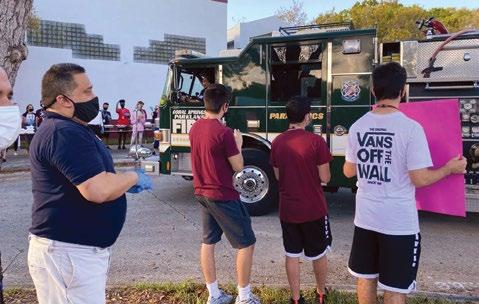
Feb. 14 was the third anniversary of the tragic shooting that occurred at Marjory Stoneman Douglas (MSD) High School in Parkland, Florida. Phoenix Organization franchisee Russ Lo Bello lives in Parkland and both of his children attended the school when the incident occurred.
The company, which has 21 BK® restaurants in the Florida Caribbean region, continues to honor the people who gave their lives on that fateful day in 2018. This year, the company served food to essential workers in a drive-thru format in the school parking lot. Four BURGER KING® restaurants, along with other restaurant brands owned by the company, prepared meals
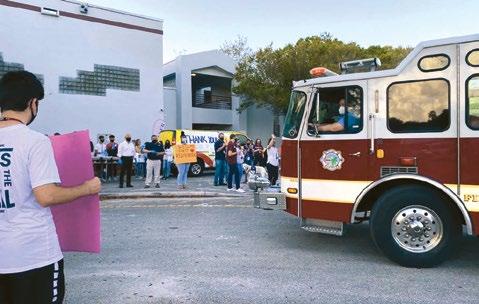
to be taken to the celebration. WHOPPER®s, chicken nuggets, double cheeseburgers and fries were just a few of the items served.
First responders, health care workers, government agency employees and others were invited to take meals, which were handed out by current MSD students. Guests cheered and clapped for the groups that came through the drive-thru.

“This is the least we can do for the families that were affected by this unnecessary tragedy,” said Lo Bello. “We support the communities we do business in, so they know that BURGER KING cares about them.” n
Factorial Restaurant Holdings Helps Health Care Heroes


As the pandemic continues into 2021, local BURGER KING® restaurants are still showing their support for essential workers. Factorial Restaurant Holdings LLC donated over 300 meals to hospital staff at Grand Rapids, Michigan, hospitals.

The team first started by donating meals to 165 veterans at the veterans’ home in December. From there, team members asked, “What else can we do?” and decided to show appreciation for health care workers.
In January, the team brought WHOPPER® meals to area hospitals, but realized that food only made it to the staff on the day shift. A few weeks later, team members decided to include night shift workers and visited Blodgett Hospital in East Grand Rapids, Michigan, to make another donation. At 8 p.m., they took 95 meals to the team members working throughout the night.
“We had an opportunity here to help the health care workers,” said Jim MacDonald, vice president of operations at Factorial Restaurant Holdings. “We wanted to take time to make sure we got the night shift. We’re really excited to be able to do something to give back to all these health care heroes.”
The team visited several more local hospitals, including Spectrum Butterworth Hospital and Helen DeVos Children’s Hospital, later that week to show appreciation to health care workers. “Our staff is super grateful for donations like this because,
as you can imagine, it’s been a very tough several months,” said Nicole Cook, senior foundation specialist with Spectrum Health Foundation. “They’ve been working around the clock and really have had to have a lot of endurance through all of this. So, any little boost of unexpected treats is greatly appreciated.”
Factorial Restaurant Holdings plans on continuing to show gratitude for deserving members of its community in the coming months. n

2021 ISSUE 1 | 9
BK franchisee Factorial Restaurant Holdings was featured on a local news station, FOX 17 West Michigan, for a donation of over 300 WHOPPER meals to local hospitals.
MEMBER NEWS
Marjory Stoneman Douglas High School students handed out food donated by the Phoenix Organization to first responders on the third anniversary of the school shooting in Parkland, Florida.
Carolina Franchise Holdings Celebrates New Hires
Carolina Franchise Holdings (CFH), owned by franchisee Bruce Daniels, celebrated the end of 2020 and the new year with promotions and additions to its team.
Several employees were promoted last fall to district manager positions: Amanda Glenn, Joshua Gadagno and Melissa Day.
Glenn has been with CFH since 2018, joining the team as a shift leader. She worked her way up through leadership positions and won National Most Improved Store for the BK Royal League as a general manager. In August, she was promoted to district manager for five locations in Georgia and South Carolina.

Gadagno also began his BK® journey in 2018, starting as a team member at one of the first CFH locations. In 2019, he showed his strong work ethic when he helped train, open and staff all new store locations. This year, he was promoted to district manager overseeing six locations in Greenwood, South Carolina.
After being hired as a general manager for the Aiken, South Carolina, BURGER KING®, Day was recently promoted to district manager. She stood out as a top-performing general manager who drove excellence in a new market.
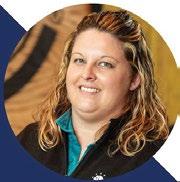
“It has been very exciting to see
calendar
Regional Events
June 16
Southwest Franchisee Association



Phoenix, Arizona
June 16
Southern California Burger King Franchisee Association
Ontario, Canada
July 6-8
Mid South Franchisee Association
Destin, Florida
these team members’ growth within the company,” said Benjamin Wasser, chief operating officer. “I cannot wait to see what they accomplish next.”
In addition to internal promotions,
National Events
May 19-20
RSI Board Meeting
Miami, Florida
June 8-9
NFA Board Meeting
Las Vegas, Nevada
June 8-11
NFA LEAD Conference
Las Vegas, Nevada
July 27-29
NFA Government Relations Committee
Washington, D.C.
the company also created a new accounting and finance department and hired Juan Carlos Roman as the corporate controller and vice president of finance to build the CFH accounting and finance team.
Roman has over 25 years of experience in accounting, finance, internal controls and enterprise resource planning (ERP) systems implementation for several publicly traded companies. Five years of that experience comes in the quick-service restaurant industry with a Wendy’s franchisee with over 250 locations. Roman was the organization’s corporate controller and later was promoted to director of financial planning and analysis.
Roman has hired Agnes Cortes as senior financial analyst, Jesse Gavilanes as payroll manager and Monica Rivera as the accounts payable accountant. In addition, Austin Daniels has been a key contributor in the CFH accounting and finance department.

Cortes was the senior financial analyst for a Wendy’s franchisee with over 250 stores and was a key contributor in the structuring of the accounting, finance and financial-reporting areas. She has worked as accounting supervisor for publicly traded companies such as Exxon Mobil and DHL Worldwide in Dubai, UAE.
Gavilanes has been payroll manager for several publicly traded companies and has experience processing over 15,000 employee payrolls.
Rivera has worked for several companies as an accounts payable specialist and manager. She has strong experience working with high-profile ERP systems.
Daniels joined CFH in January of 2020 after graduating from the University of Georgia. He started as a development analyst focusing on accounts payable of new builds as well as oversight of construction. In July he switched to accounting full time.

“I’m very confident that the CFH accounting and finance team will bring added value to the company, and with their education and professional acumen, the members will bring the CFH accounting and finance areas up to industry standard. I’m very excited with the team and the culture that we are building,” Roman said. n

10 | 2021 ISSUE 1
MEMBER NEWS
From left, Juan Carlos Roman, Austin Daniels, Monica Rivera and Jesse Gavilanes all make up the newly created accounting and finance team at CFH.
From left, Amanda Glenn, Joshua Gadagno and Melissa Day were all recently promoted to district manager positions for Carolina Franchise Holdings.
New South Coalition’s Former Leaders Recall Grand Association
In 2020, the books were closed on the New South Coalition (NSC), one former piece of the network of regional franchisee associations that make up the National Franchisee Association (NFA). The year before, the NSC merged to become part of the Mid South Franchisee Association.
Though it no longer exists on paper, in the memories of its former members, it remains “the greatest association in the history of the NFA,” as former president Bob Reid, a franchisee with Freedom Restaurant 2 in Charlotte, North Carolina, put it. As the last bits of the NSC’s official existence were put to rest, some of its former leaders recalled the times and events that pushed the NSC into existence and the people and policies that made it stand out.
“There are lots of great memories with a lot of great franchisees and lasting relationships due to the vision of our franchise operators,” Hugh Bigham said. “A lot of great work was done on our behalf by these gentlemen, and I believe we saved BURGER KING® from themselves. We went through a lot of hair-pulling experiences during those early years when BURGER KING refused to acknowledge our existence, but we prevailed.” Bigham is a BK® franchisee with Golden B Enterprises and served as one of the coalition’s presidents over its nearly 20-year history.
The NSC grew out of the original network of associations that were formed to help franchisees get better pricing on supplies and developed into associations that allowed them to share best practices for running their businesses and concerns over issues – such as the takeover of the BK brand and system by European-based Grand Metropolitan.
When it was formed in 2000, the New South Coalition had members of the Carolina Franchisee Association (CFA) and the Virginia Franchisee Association (VFA). Additionally, the Carolina group had some members of what was formerly known as the Atlanta Franchisee Association who had joined when that group disbanded.


At the start, the two groups represented about 500 BURGER KING locations throughout the Southeast, with membership in one organization giving a franchisee membership in all three. The arrangement allowed the CFA and VFA to function as one organization while preserving NFA board and committee seats, according to a history compiled by Rod Martin, a franchisee with Atlantic Coast Foods and a president of the NSC, who, sadly, died in March. (See the next issue of Flame for more on Martin’s passing.) The group soon reached 600 locations with more than 40 franchisee groups, making it the largest regional association in the NFA at the time.
Another unique attribute of the NSC was its governing structure, which required one-term presidents. “Our thinking was that we felt that everyone in our association had a wealth of knowledge to share, and in fact, they did share it,” Bigham said.
The organization was also blessed to have a very active membership. “The NSC has had many awesome franchisees all willing to serve on every national franchisee and corporate committee,” said Ed Northrop, a franchisee with EDN Inc. and another former president. “This involvement led to an increase in understanding and knowledge by all of us. The face-to-face meetings and exchange of ideas and possible solutions increased all of our efficiencies and, hopefully, income.”
What most stands out in the minds of its former members, however, are the ties they built among themselves and with the vendors who supported the NSC. “Personal relationships are, in my opinion, critical to the success of the entire franchise system,” Northrop said. “Each of us should – and I know we do – learn from what others are doing and how they resolve the many challenges we face each day.”
It’s those relationships that endure in good times and bad and create the lasting memories that were brought to mind as the NSC was replaced by the Mid South Franchisee Association. “We
New South Coalition presidents
Steve Balltrip
Chas Berle
Hugh Bigham
Pete Cotter
Bill Lee
Rod Martin
Ray Meeks
John Newcomb
Brent Northrop
Ed Northrop
Eric Oppenheim
Bob Reid
Tom Roose
Alex Salgueiro
Larry Stokes
Brian Vaughn
Mike White
all know things change and we move on, but everyone who has been part of this organization owes all of you a great debt of gratitude and hopefully they appreciate everything you did to protect and serve the franchise community,” Reid said to a group of former presidents as he completed the final steps to closing the NSC’s books.
“I believe each association serves its members in the best manner they believe that fits their group,” Northrop said. “I believed that the NSC was a well-run organization with the slate of officers, a continuity system of leadership and well-organized meetings supported by BKC leadership and by many of our vendor partners, who were critical participants in our meetings and contributed in many ways to our success and the BK brand.
“The ultimate force holding the brand in place has been the network of the franchisee system.” n

2021 ISSUE 1 | 11 REGIONAL NEWS
REGIONAL ASSOCIATIONS





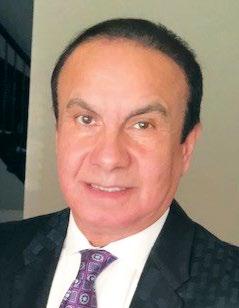

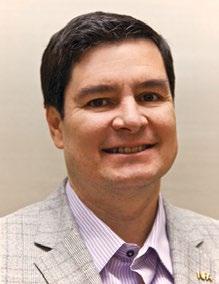
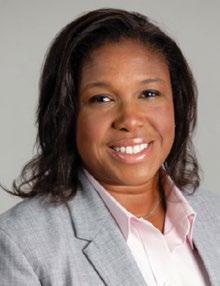
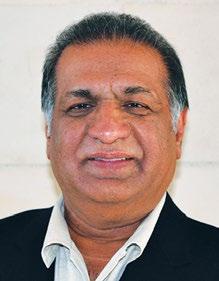
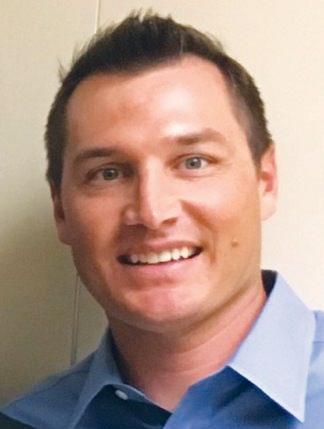



12 | 2021 ISSUE 1
Ayaz Virji Great Western Franchisee Association
Michael Laird Southwest Franchisee Association
Shirley Humerian Southern California Franchisee Association
Amir Allison Mountain Franchisee Association
Patrick Sidhu Large Franchisee Group
Camille Lee-Johnson Minority Franchisee Association
Guillermo Perales International Hispanic Franchisee Association
Mike Kitchingman Canadian Franchisee Association
Nasser Aliabadi Great Western Franchisee Association Mid South Franchisee Association
Mid South Franchisee Association
Kevin Newell Mike Callahan
Gary Geiger Great Western Franchisee Association


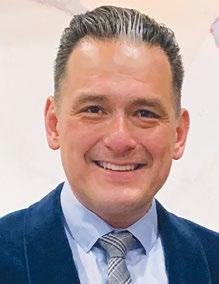




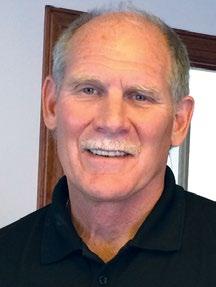
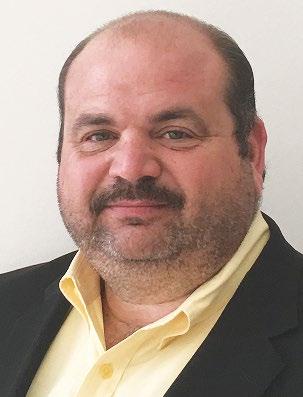


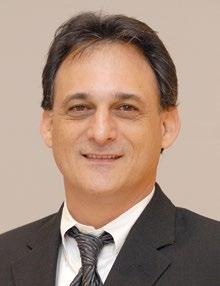

2021 ISSUE 1 | 13
Adam Velarde Great Midwest Coalition
Henry Delouvrier
C.J. Timoney Ohio River Coalition
Brek Kohler New England Franchisee Association
Amir Syed Metro New York Franchisee Association
Gary Andrzejewski Mid-Atlantic Franchisee Association
Russ Lo Bello Florida/Caribbean Franchisee Association
Mid South Franchisee Association
Great Midwest Coalition
Matt Carpenter Great Midwest Coalition
Brent Northrop
Glenn Levins Florida/Caribbean Franchisee Association
Mid South Franchisee Association
Larry Stokes
Nasser Aliabadi
Amir Allison
Gary Andrzejewski
Scott Andrzejewski
Simrat Aulakh
Nathan Avard
Perry Beaton
Emily Bennett
Howard Bowen
Danae Boyd
Annette Broatch
Ronald Broatch
Michael Callahan
Thomas Cardarelli
William Carpenter
BURGER KING® FRANCHISEE PAC Update


In2020, the BURGER KING® Franchisee PAC raised $103,954 toward electing and supporting pro-business legislators. The generosity of everyone who contributed is greatly appreciated. Thank you to the following donors:
Joseph Clements Jr.
Stephen Dankert
Robert De La Rosa
Jack Doyle
Nicole and Eric Dreier
Kimberly Ervin
Dominic Flis
James Froio
Michael Gould
Kevin Haas
Shirley Humerian
David Irvin
Shane Jacobs
William Janikies
Anthony Josephson
Kane Enterprises

Bill Keller
Thomas Keller
Brek Kohler
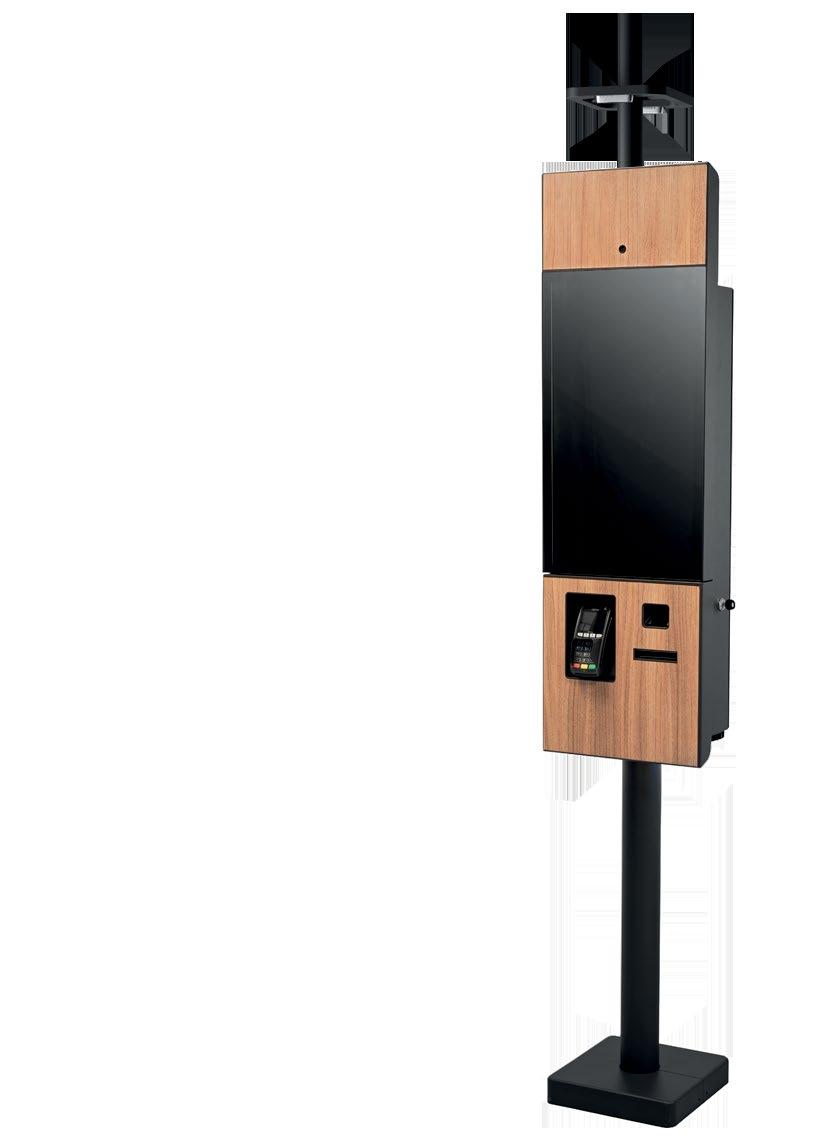
Ken Kopischke
Nick Kraft
Michael Laird
Dave Laslow
Leo Leon
Bradley Mailloux
Eric Maust
Lawrence McAninch
Thomas McDonald
Kevin Newell
Grant Norrid
Brent Northrop
Todd Northrop
Bill Oldershaw
Andrew Paterno
Bruce Pavlikowski
Bob Reid
Brian Robison
Gary Robison
Amir Sahebalzamany
Richard Santowski
Andrew Schory
Allison Schuster
Todd Schuster
Glenn Seyfert
Veerkaran Singh
Stanley Smiedt
David Sutz
Amir Syed
The Phoenix Organization
Sriniv Tummalapenta
Patricia Vasquez
Adam Velarde
Anthony Versaci
Michael Wallstein
Camilla Warren
Justin White
Sean Willison
14 | 2021 ISSUE 1 Preorder now to secure yours. Contact bksmartstore@acrelec.com
Spotlight on the 117th Congress: Sen. Susan Collins (R-ME)

QGrowing up with parents involved in politics, what qualities or skills did you develop that you utilize as a senator?
APublic service is in my DNA. Both of my parents served as mayor of my hometown of Caribou, Maine. My father served in the Maine Legislature, and my mother has achieved leadership positions on countless boards and commissions, from the University of Maine System Trustees to Catholic Charities of Maine. I had great role models at home and saw every day the importance of committed citizens getting involved.
QHow has your role on the Committee on Health, Education, Labor and Pensions (HELP) influenced your opinions on the impact of legislation on small business?
AThe issues addressed by the HELP Committee coincide with issues of great concern to America’s small businesses. One example is the need to lower the cost of health care, which most Americans obtain through employer-sponsored plans. Another is the need to better align workforce training programs with the skills needed to compete in the global economy.
QHow is relief legislation, similar to what was passed early during the COVID-19 pandemic, important to small-business owners?
AThe Paycheck Protection Program (PPP) I authored last spring has been a critical lifeline for more than 5 million small employers, businesses as well as nonprofits, helping to sustain the jobs of upwards of 50 million Americans, including those employed by franchisees. In Maine alone, this program has helped sustain more than 250,000 jobs. The new COVID-19 relief package signed into law at the end of 2020 includes a provision I
co-authored to extend this crucial program and allow the hardest-hit small businesses to receive a second forgivable PPP loan. The relief package also includes many other measures that will help American families, our health care system, small businesses, employees and schools during the ongoing crisis.
QWhat challenges have you helped small businesses in your district overcome?
AI come from a six-generation small-business family and understand the challenges facing our job creators. As a former regional administrator of the Small Business Administration and the founding director of the Center for Family Business at Husson University, I know the importance of federal policies that support, rather than impede, the entrepreneurs who power our economy. That’s why I have always advocated for pro-growth tax policies, reasonable and consistent regulations, and infrastructure modernization to spur our economy through safe and efficient transportation as well as expanded broadband access, a major problem in parts of rural Maine.
QIn what ways are you seeking feedback from small businesses in Maine and using that information in Washington, D.C.?


ADuring my service in the Senate, I have visited countless small businesses throughout Maine, from family farms to cutting-edge technology companies. In addition, I maintain six regional offices across the state, and my staff is in close contact with business leaders. One of my primary concerns in any legislation I develop, and among the first questions I ask in legislation that comes before the Senate, is how it will affect our job creators in the small-business community. n

2021 ISSUE 1 | 15
IN MEMORIAM
Jack Muirhead
Jack Muirhead, a respected BURGER KING® franchisee in the Northeast for 40 years, died Dec. 16, leaving a reputation for superbly run restaurants and dedication to the brand and his employees.
Muirhead, along with his son, John, owned and operated New King Inc., with seven restaurants. The company, based in Wethersfield, Connecticut, has operated a BK® franchise since 1980.
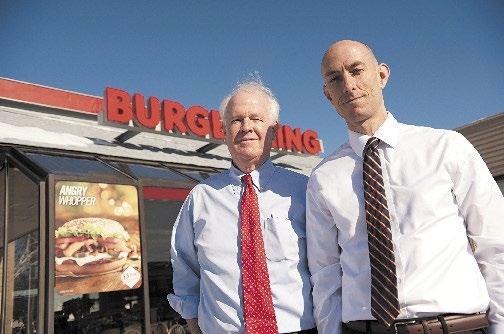

John Joseph “Jack” Muirhead Jr. was a Connecticut native and a graduate of East Hartford High School and the University of Hartford who proudly built a successful business as a BURGER KING franchisee from the ground up. He caught the entrepreneurial bug while working at a local hot dog stand as a teen and never shook his love for the restaurant business. He first opened a diner with his brothers before his introduction to the BK brand.
Muirhead put people – both guests and employees – first in the business, said his son, John Muirhead III. “He treated everyone like family. He was loyal to them and that loyalty was returned. New King’s current director of operations, David Demers, was Jack’s first hire in 1980 and still runs operations today. New King’s district manager, Vahid Ebrahimzadeh, has been with New King since 1983 and continues to run great restaurants. In the seven restaurants, all the general managers have been with New King for a minimum of 19 years, most starting as crew. It is truly an unprecedented amount of longevity in this industry that speaks to how [he] treated people.”
Muirhead was a longtime member of the National Franchisee Association (NFA) and was active in the regional New England Franchisee Association (NEFA). He was president of his local chamber of commerce in Connecticut and a board member of a local community bank. He was also known for sponsoring community events, charities and other organizations that asked for help.
Laurie Palmer, a former franchisee and former president of the NEFA, grew up working in her family’s BURGER KING business, and her father and Muirhead were friends. “When you think of a
good man, his face would pop into your mind,” she said. “He was a good father and a good businessman, not just one or the other.”
NFA Vice Chair Jim Froio called Muirhead “one of the nicest men you will ever meet. He was always friendly, always professional and operated with the highest integrity. He was always interested in the brand and in doing a good job, and it shows in his son, who runs the business now.”
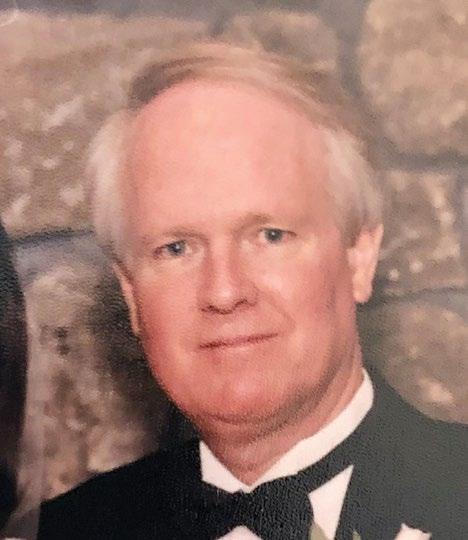

“What I most admire about my father was his ability to connect to people,” John Muirhead said. “He was extremely curious, kind and thoughtful. He had a genuine interest in other peoples’ well-being that made it very easy for people to connect with him.”
Stan Paulauskas, a BURGER KING franchisee with FPS Inc., was one of those people. He credits Muirhead with helping him decide to join the system. “I called him to ask if I could stop by his restaurant in Newington, Connecticut, to pick his brain on his BK experience as a franchisee. I operated the McDonald’s across the street and was impressed with his operational standards. Jack spent over two hours answering all my questions and provided important insight,” Paulauskas said. “That meeting was the start of a 30-year-plus friendship.”
Over the years, Paulauskas and Muirhead often discussed challenges they faced. “One time I had a personal issue with one of my daughters,” Paulauskas said. “Jack provided me with guidance that helped change her life. Jack was a good man who cared deeply for Coleen, his wife of 52 years, along with his children, Melissa, David and John.”
“He quietly did things to help many of his employees in need, never looking for recognition,” Paulauskas added. “I will always admire Jack for the integrity and class he brought to the way he lived his life. I will miss those conversations with my friend.”
“Since his passing, I have had countless team members tell me a story of how my dad helped them with something in their personal life,” Muirhead said. “They were all touching stories that made me both proud and inspired.
“What I most appreciate about him as a BURGER KING owner is it afforded me the opportunity to spend the last 20 years by his side,” his son added. “I saw him almost every single day for the 20 years we worked together, and I will forever be grateful for that.”
16 | 2021 ISSUE 1
n
Jack and John Muirhead are shown outside one of New King Inc.’s Connecticut BURGER KING restaurants.
MEET THE NEWEST MEMBERS OF THE NFA BOARD OF DIRECTORS

HENRY DELOUVRIER
Title: Owner Company: Broadway Restaurant Group
Number of Units: 60
Year entered system: 2016
How did you become a BURGER KING® franchisee?
I had friends who were franchisees. Hearing about their experiences and seeing the growth happening in the brand were the first things that attracted me to be a franchisee. Through them we were introduced to corporate to learn more, and before you knew it, we took the plunge and became franchisees ourselves.
What attracted you to the brand? We really liked that BURGER KING is an iconic brand with a loyal customer base and was experiencing an overhaul in identity and tremendous growth as a result. Given the direction the company was (and still is!) heading, we were excited by the opportunity to jump on board and be a part of it.
What motivated you to become involved with the NFA at this level? Mostly that I see opportunities where I can help advance NFA priorities. For the last couple years, I have been an RSI board member and also an active member of several NFA committees – including the Marketing Council and technology task force, and my business partner, Christine Apold, serves on the Image Committee. In addition, our group has worked closely with Burger King Corp. to spearhead recent initiatives, including the Impossible WHOPPER® launch and, more recently, a menu simplification effort. Serving in these various capacities allows me to see across a wide range of initiatives, which I believe can help the NFA ensure that the many threads all fit together and align with NFA priorities.
What do you see as your role as a board member? To leverage my involvement in the various committees and initiatives I am a part of and provide the NFA direct insights on those – good or bad. I also have an analytical background, so a lot of the testing that continues to be improved upon is an area I am focusing on a lot. It is critical that we have a clear understanding of the market potential of new initiatives, and that we have full confidence in our execution plans. There has been a lot of improvement recently in these areas, to which I credit the NFA and Burger King Corp. leadership. I hope to help accelerate the positive momentum.
What would you most like to see accomplished during your term? I would like to help normalize franchisee involvement earlier in the planning of strategic initiatives. As mentioned previously, there has been significant improvement on this over the last six months, though there is still more work to be done. The hand-breaded chicken rollout is an example where the brand and
franchisees are working together in a productive way to improve the product launch, which is a step in the right direction. I am also working closely with Burger King Corp. on the upcoming release of the new loyalty program. It is important to extend this collaborative approach to more areas of the business and earlier on in the processes, which is essential to launching our brand forward.
CRAIG (C.J.) TIMONEY JR.
Title: President
Company: CJT Restaurants Inc.

Number of Units: 8
Year entered system: 2013
How did you become a BURGER KING franchisee?
Since 1981 my family has been active in the BURGER KING system as a franchisee, and I grew up with BURGER KING surrounding me. Once graduated from college, I came back to the family business and actively began focusing on learning operations. From there I began to review our existing geography and have since been actively developing our area, where there is a need for our brand presence. I continue to focus my time in-restaurant monitoring the pulse of our daily business and seeing where our team can improve.
What attracted you to the brand? I grew up surrounded by BURGER KING, whether it was working summers as a kid or becoming more involved in day-to-day operations. I enjoy the constant chase of trying to maximize our presence and improve our image relative to our competitors.
What motivated you to become involved with the NFA at this level? I had been involved at the regional level as a board member for several years and wanted to use my hands-on experiences in the restaurant to help improve all aspects of the brand. I also enjoy the sense of community the system has within these organizations and believe it is one of the best ways for us to work together to achieve higher goals.
What do you see as your role as a board member?
I would like to think I can bring many different aspects of the franchise model to light after being involved in all levels of our organization from maintenance, operations, finance and human resources. I believe our system can make a better effort with product temperature to help our guests feel they have a fresh product every visit.

What would you most like to see accomplished during your term? I would like to continue to increase the strength of the franchisee voice and try to build the level of trust between the franchisor and franchisee. Coming up with a united plan will build a stronger, more successful system. n

2021 ISSUE 1 | 17
2021 ISSUE 1 | 17
Each
year, the National Franchisee Association (NFA) highlights individuals who have been welcomed to the NFA Board of Directors over the last year. The association would like to give a warm welcome to the following new board members: Henry Delouvrier and C.J. Timoney. Read on to learn more about your newest board members.
Support the Vendors That Support Your Association


18 | 2021 ISSUE 1
Company Name Level Contact Name Email Phone Elevanta Health Partner Zack Johnson zackj@nfabk.org 678-540-6214 Elevanta Payroll & Accounting Partner Stephanie Luke sluke@mizecpas.com 785-233-0536 x3022 Lockton Affinity Partner Reid Robson elevanta@locktonaffinity.com 844-403-4947 rapid! Partner Edward Cole ecole@greendotcorp.com 813-340-3276 TraitSet Partner Dan Longton dan@hrgems.com 239-877-0110 Keurig Dr Pepper Diamond Josh Hanley josh.hanley@dpsg.com 770-844-1597 The Coca-Cola Co. Ruby Susan Miller skmiller@coca-cola.com 404-852-5399 Welbilt Inc. Ruby Joan Salah joan.salah@welbilt.com 813-504-9262 Acrelec America Sapphire Paul Manganaro paul.manganaro@acrelec.com 412-537-6577 Atmosphere TV Sapphire Joey Martinez joey.martinez@atmosphere.tv 512-947-5789 Comcast Business Sapphire Marybeth Pearce marybeth_pearce@comcast.com 267-283-8261 Cummings Signs Sapphire Dan Belling dan.belling@cummingssigns.com 615-872-5471 DTiQ Sapphire Alison Morey amorey@dtiq.com 800-933-8388 Hall Financial Advisors Sapphire Angela Harkness angela.harkness@hallfa.com 866-865-4442 Integrated Cash Logistics Sapphire Chris Stanley chris.stanley@iclcash.com 412-906-0720 Lancer Worldwide Sapphire Greg Edwards greg.edwards@lancercorp.com 904-631-1031 Northern Bank and Trust Co. Sapphire Kelley Munsell kmunsell@nbtc.com 781-569-1584 Restaurant Technologies Sapphire Ileana Barbara ibarbara@rti-inc.com 651-233-3042 Tapcheck Sapphire Ron Gaver ron.gaver@tapcheck.com 866-697-6016 The Hershey Co. Sapphire Kevin Austene kaustene@hersheys.com 630-724-7124 Xenial Sapphire Samantha Young samantha.young@xenial.com 215-485-0292 Allen Industries Inc. Pearl Betsy Swan betsy.swan@allenindustries.com 336-615-8791 Ecolab Pearl Al Powell al.powell@ecolab.com 816-206-2513 Global Building Contractors LLC Pearl Reece Milton r.milton@gbc.llc 865-640-7099 Gycor International Pearl David Rogers drogers@gycorfilters.com 800-772-0660 Mount Franklin Foods Pearl Linda Dorsett lindad@mountfranklinfoods.com 904-923-4053 Nestlé Waters North America Pearl Anitra Miller anitra.miller@waters.nestle.com 321-863-0944 Simplot Pearl Brad Glover brad.glover@simplot.com 704-907-6522 SKECHERS Pearl Harold Surabian haroldsu@skechers.com 310-318-3100 x1860 Tyson Foods Inc. Pearl Kathy Black kathy.black@tyson.com 410-340-3974 UPshow Pearl Scott Axonovitz scott@upshow.tv 419-261-1802 ACP Inc./Amana, an Ali Group Co. Assoc. Mbr. Chris Bartley cbartley@acpsolutions.com 319-899-6723 Amerex Assoc. Mbr. Jamie Knowles james.knowles@amerex-fire.com 205-810-9137 Armor Security Assoc. Mbr. Michael Megraw michael@armoralarm.com 913-201-4959 Auxilior Capital Partners Assoc. Mbr. Steve Pattison spattison@auxcap.com 610-897-0153 Bimbo Bakeries Assoc. Mbr. Turner Creech turner.creech@grupobimbo.com 770-309-7551 Casablanca Design Group Assoc. Mbr. John Harrison john.harrison@casablancadesign.com 770-337-0931 DAR PRO Solutions Assoc. Mbr. Dave Van Dorselaer dvandorselaer@darpro.com 832-221-1630 DMI Manufacturing Inc. Assoc. Mbr. Denise Bangasser denise@dmiparts.com 800-238-5384 Duke Manufacturing Assoc. Mbr. Rick Garriga rgarriga@dukemfg.com 305-270-6242 FCC Commercial Furniture Assoc. Mbr. Russ Cooley russ.cooley@fccfurn.com 541-580-3192 Filtercorp Inc. Assoc. Mbr. Brian Bonham bbonham@filtercorp.com 720-329-3816 Franke Foodservice Systems Assoc. Mbr. John Edmonds john.edmonds@franke.com 615-462-4191 Frozen Beverage Dispensers Assoc. Mbr. Joe Clements jclements@fbdfrozen.com 214-732-9555 Future Energy Solutions Assoc. Mbr. Wayne Burrell wayneburrell@feslighting.com 561-445-0892 G4S Retail Solutions (USA) Inc. Assoc. Mbr. James Hester james.hester@usa.g4s.com 504-491-6291 Hoshizaki America Inc. Assoc. Mbr. Bret Eldridge beldridge@hoshizaki.com 678-907-6922 InSite Real Estate LLC Assoc. Mbr. Tom Kostelny tkostelny@insiterealestate.com 630-617-9155 Jolt Assoc. Mbr. Pete Cavanaugh pete.cavanaugh@jolt.com 877-396-4112 Koala Kare, a division of Bobrick Washroom Equipment Assoc. Mbr. Beth Gardner bgardner@bobrick.com 904-310-8707 Loomis Assoc. Mbr. Tom Simon tom.simon@us.loomis.com 602-619-9886 National Franchise Sales Assoc. Mbr. Mike Deegan md@nationalfranchisesales.com 949-428-0492 NCA Consultants Assoc. Mbr. Kevin Riley kriley@ncaconsultants.com 727-560-8907 Nieco Corp. Assoc. Mbr. Jaime Nau jnau@nieco.com 707-284-7100 One More Time Assoc. Mbr. Alex Alvarez aalvarez@onemoretimeinc.com 323-839-8541 Pacific Premier Franchise Capital Assoc. Mbr. Sharon Soltero ssoltero@ppbifranchise.com 402-562-1801 Parts Town Assoc. Mbr. Craig Drummond cdrummond@partstown.com 717-763-0508 PrepWizard Assoc. Mbr. Cole Harris cole@prepwizard.com 888-993-7737 Revenue Management Solutions Assoc. Mbr. Chris Norton cnorton@revenuemanage.com 813-386-5005 Roofing Source Assoc. Mbr. Tom Dawson tom.dawson@roofingsource.com 407-592-8363 SabreTooth Technologies Assoc. Mbr. Patti Kratz patti@sabretoothtechnologies.com 336-340-1196 Seating Concepts Assoc. Mbr. Ken Hibben khibben@seating-concepts.com 815-483-2253 Solink Assoc. Mbr. Kassam Karim kkarim@solink.com 651-214-3340 Spray Master Technologies Assoc. Mbr. Barry Healey bhealey@spraymastertech.com 479-366-4471 Taylor Ultimate Services Co. Assoc. Mbr. Raul Piedra III raul@taylorus.com 954-217-9100 Valassis, A Vericast Business Assoc. Mbr. Amy Sanders aesander@valassis.com 954-805-3563 Valley Proteins Assoc. Mbr. Ron Rogers rrogers@valleyproteins.com 540-877-3220 Veterans of Foreign Wars Foundation (VFW) Assoc. Mbr. Kevin Jamison kjamison@vfw.org 816-968-1175 Zen Ecosystems Assoc. Mbr. Nicole Ricouard nicole.ricouard@zenecosystems.com 949-359-8208
Franchisee to Franchisee Forum


By far, 2020 was the most challenging year I’ve been through as a restaurant operator. But with great hardships come great learnings. We adapted to a new way of life and quickly adjusted to our guests’ behavior. We did a great job leading the way to assuring best-in-class safety standards were in place in terms of accommodating our guests and team members during the height of the pandemic.
To tackle staffing challenges, we provided an incentive payout at the end of Q2. Keeping our team members was by far our biggest challenge, and although our finances were crippled by very high negative sales, as a small way of thanking those that did not leave us, anyone that was hired before February 2020 received anywhere from $300 to $1,000 for their loyalty.
Another tactic that came out of the pandemic was greater focus on our off-premise sales, particularly third-party delivery. We discovered so many gaping holes in the overall operations of this platform that we were able to identify the glitches, work with all parties involved and take the necessary steps in fixing the issues. Although the profit margins are not where we would like them to be with this way of doing business, we can at least take some solace that we were able to successfully build this category to close to 30% of total restaurant sales, nearly tripling from pre-pandemic numbers during that period in New York City.
- Amir Syed
When the COVID-19 lockdown hit the nation, it was something none of us had ever been through. Modern America was ill-prepared for anything like this, but our restaurants weathered the storm like true champions.
Our focus was simply to shore up safety practices and do everything possible to keep team members and guests safe. We set up plexiglass dividers in all windows, used plastic trays to handle money and credit cards, bought an overabundance of masks and high-quality gloves, and simply tried to keep the virus out of our restaurants.
All our focus went into drive-thru. We made certain that bump-outs were open, we were rush ready and window time was our enemy. Our people and managers pushed cars day in and day out. Even with staffing issues, our drive-thru time in 2020 was some of the best in our company’s history. We knew if we could just keep the line moving and have those guests let off their brake pedals every few seconds, we would keep them in line, so that’s what we did.
The year started out on a good note until COVID-19 hit. Our challenge in my market started with a product shortage from a supplier. This lasted several months. We spent a good portion of our time finding the products we needed to continue to serve our customers a full menu. As far as our customers during this period, they were not affected. It was business as usual in their eyes.
Our priority was to set up a safe environment for our customers and employees. Operationally, we started using tablets outside for drive-thru order-taking to speed the process. For most of the year and even today, most stores are drive-thru and carry-out only in Baltimore.
The CARES Act gave us access to Paycheck Protection Program (PPP) money. This was a lifesaver. It allowed us to continue running the business as normal. The PPP money allowed us to deal with the loss of sales and continue to do the necessary improvements to keep operating. More importantly, it allowed us to prepare for 2021.
One focus of ours this year is accessibility. We moved our store hours back to normal, advertising 6 a.m. to 12 a.m., and promoted it on our reader boards in January.
We also are focusing on improving our outside image and drive-thru service. We converted all our restaurants to LED outside lighting. We installed digital menu boards in all restaurants in Q1. Last, we are setting up stores with line-buster tablets. I am hoping the enhancements will improve the customer’s drive-thru experience.
I looked at our balance sheet and paid down some debt early. I wanted to give us the best chance in 2021, which was and still is somewhat an unknown regarding the virus and government regulations. I am glad 2020 is over and looking forward to being back to normal in 2022.
- Gary Andrzejewski
We ran out food, line-busted small orders and pulled cars with longer wait times or full cooks. Dining rooms are 30% of our business, give or take. Our restaurant division was able to close out 2020 only 11% down in gross sales and 1.22% down in net profit. Considering the alternative, we took this as a huge win.
In 2021, we are attempting to get back to normal. We have begun opening several of our dining rooms as state and local restrictions ease. We are still practicing safe handling with full masks and gloves on every team member, but it seems life is starting to get back to normal. We have not had a positive COVID-19 case in over a month, and our focus is to get back to full operating hours and open restaurants.
- Jordan Drury
2021 ISSUE 1 | 19
How did your BURGER KING® business overcome 2020’s challenges and what steps are you taking to move forward in 2021?
LOOK LISTEN READ
Look, Listen, Read is a quarterly compilation of some of the most highly rated and reviewed apps, podcasts, books, websites and other resources. NFA does not support or endorse the use of these tools, which merely serve as a guide to exploring a new level of knowledge and productivity for your business.



1The “How to Succeed Podcast” teaches the success principles and interpersonal communication skills needed to get to the top and stay there. We are dedicated to empowering lifelong learners and ambitious entrepreneurs with options for growth they didn’t know they had.

2Jive established itself as the gold standard in social business technology and remains the most adopted primary collaboration platform in the world. Millions of users and many of the world’s most successful organizations depend on Jive-powered intranets and collaboration hubs to get work done, harness their institutional knowledge and stay ahead of competitors.


3Using examples from organizations like McDonald’s, DHL, Marriott, Lockheed Martin, Discover Financial, Ultimate Software and many more, author Chip Bell shows how co-creation partnerships enable you to tap into the treasure trove of ideas, ingenuity and genius-in-the-raw within every customer through his work “Inside Your Customer’s Imagination: 5 Secrets for Creating Breakthrough Products, Services, and Solutions.”

4What generates leadership and loyalty today is vastly different from what it was less than a decade ago. In the podcast, “Leadership and Loyalty,” Dov Baron and his world-class guests, including Guy Kawasaki, Tom Bilyeau, Jordan Harbinger, Bedros Keuilian, Carly Fiorina, John Oates and Kevin Harrington, share the raw truth of their heroic journeys from devastation to purpose.



5Drawing on two decades as an ethics adviser guiding corporations and leaders, academic institutions, nonprofit organizations and students in her Stanford University ethics courses, Susan Liautaud provides clarity to blurry ethical questions, walking you through a straightforward, four-step process for ethical decision-making you can use every day. Liautaud also explains the six forces driving virtually every ethical choice we face. Exploring some of today’s most challenging ethics dilemmas and showing you how to develop a clear point of view, speak out with authority, make effective decisions and contribute to a more ethical world for yourself and others, “The Power of Ethics: How to Make Good Choices in a Complicated World” is the must-have ethics guide for the 21st century.

67shifts allows you to manage employee schedules and labor costs. You can drag and drop employees into shifts based on their availability and shift requirements. Employees receive instant notifications about their shifts, and you can approve or decline employee requests with a click of a button. The labor cost-savings calculator helps you make important scheduling decisions.


7Chris Hill is a chef, restaurant owner, author and speaker known for his skill in management and entrepreneurship. In his work “Making the Cut: What Separates the Best From the Rest,” Hill shares his collection of stories from the restaurant people he’s encountered in the kitchen. These tales serve as inspiration, direction and advice for anyone who’s serious about advancing their own career in the restaurant industry. Hill shares secrets from some of the most famous chefs alive on how they found success – and how you can too.
8Orderly helps you with invoicing, accounting and inventory in one management app. Snap a picture of your invoices to help you avoid double payments, lost invoices, etc. You can easily export spend reports from the app to your accounting software. You can also follow price trends and monitor food spending and supplier pricing with the inventory management feature. n



20 | 2021 ISSUE 1
Ghost Kitchens
1
Ghost kitchens, also called virtual, cloud or dark kitchens, are restaurants without a dining room. They can be support kitchens for off-premises restaurants or stand-alone facilities for takeout and delivery.
2
Between 2019 and 2020, meal delivery orders increased by more than 150%.
3
Experts expect the food delivery market to grow by tenfold over the next decade.
4
It is estimated that ghost kitchens could create a $1 trillion global opportunity by 2030.
5
The top two reasons for the explosive growth of ghost kitchens over the past few years are low risk and reduced cost.
One topic: 10 facts
6
In New York City, the estimated cost to set up a ghost kitchen is just $100,000, much less than the $1 million to $1.5 million needed to start a brick-and-mortar restaurant.
7
There are currently over 1,500 ghost kitchens in the United States.
8
China is the leader of this market with over 7,500 ghost kitchens.
9
Twenty percent of consumers say they spend more on off-premise orders compared to a regular dine-in experience.
10
Between Q1 and Q2 of 2020, the number of consumers placing restaurant orders by phone or online increased by 24%.
Sources: Technomic, Euromonitor, Restaurant Dive


2021 ISSUE 1 | 21 COMBO MEAL
20201
NFA Boosts Leadership Structure With New Opportunities for Franchisees


The National Franchisee Association (NFA) has established a new office in its governance structure, one that offers additional opportunities for franchisees to serve the BURGER KING® system and will give them experience to ensure the system has a deep bench of potential future leaders.
 by SEAN IRELAND
by SEAN IRELAND
In January, Anthony Josephson, Russ Lo Bello and Andrew Schory became second vice presidents of the NFA, each with special responsibilities for guiding specific areas of need in the organization. Josephson is the liaison for the NFA Board of Directors to Elevanta LLC, the NFA-owned professional services firm that provides health and business insurance solutions and association management, meeting, convention-planning and government relations services. Lo Bello is leading NFA’s IT Task Force, which provides franchisee input on Burger King Corp.’s growing technology initiatives. Schory is chair of the NFA LEAD Conference Committee, charged with planning the organization’s growth and development conference for franchisees and above-restaurant leaders.
The new second vice presidents were appointed by NFA Chair Dan Fitzpatrick not only to fill critical needs for the organization, but also to provide vital experience to franchisees who will be well-versed on the system when it is their turn to take on other leadership opportunities. “Succession planning is a requirement for any organization of size, scale and substance that intends to be successful for the long term,” Fitzpatrick said.
“The NFA officers, beginning in early 2020, undertook a process to establish a succession plan for the organization’s leadership,” he added. “This process included not only the NFA Board of Directors, but the board of Elevanta and its leadership. The establishment of second vice presidents provides leadership opportunities in meaningful activities that will provide valuable and unique experiences for them while they add their own unique talent and capabilities to important efforts.”
Each of the trio brings to the position a background with the BK® brand that reaches back to their childhoods. Josephson and
22 | 2021 ISSUE 1
Schory are second-generation franchisees, and Lo Bello worked in a restaurant managed by an uncle. They earned their stripes by learning and working in BURGER KING restaurants, and they developed a passion for the brand that keeps them excited and optimistic about its future.
Josephson’s father and uncle opened three BURGER KINGs in 1978. Now as the CEO of JS Foods, based in California, he leads the company’s 32 locations. NFA involvement is an important part of Josephson’s overall commitment to his business. “The NFA is the single best advocate for franchisees. It requires dedicated and talented leadership to best serve our interests. I would encourage every franchisee to get involved at some level,” he said.
Josephson will serve as a direct connection between the NFA board and Elevanta. “It’s important that both the NFA board and franchise community understand the full scope and functions of Elevanta,” he said. “I’m also interested in exploring other areas of growth for Elevanta. This organization provides valuable services to the franchise community and part of my role will be promoting this to other franchisees. I have a background in financial services, and this is a good fit for the services that Elevanta provides. I think there is a lot more we can do to grow this organization that will directly benefit the NFA.”


Lo Bello is a partner in The Phoenix Organization, based in Florida, which operates 21 BK locations. He is also president of the Florida/Caribbean Franchisee Association. He has a long history with the brand, dating back to childhood when he and a cousin would help nights at the BURGER KING where his uncle was a manager. “I learned how to mop and clean broilers and clean fryers and, even during six years in the military, never really stepped away
from it,” he said. “It never gets away from you once it gets in your blood. I love doing this.”
Lo Bello said taking on additional responsibility beyond his own business is important because of what it means for the brand-franchisee partnership. “Serving the NFA not only helps fellow franchisees, but also allows us to help shape the future of BURGER KING because the NFA has a very large voice,” he said. “Our organization ensures that both sides have equal say. Without us stepping up to the plate, there would be no voice for franchisees.”
The IT Task Force touches on virtually every area of the business and provides a franchisee perspective specifically focused on Burger King Corp.’s technology activities. “Progress on technology is a critical path item for franchisee competitiveness and success as new sales channels are developed,” Fitzpatrick said.





“Everything we are doing requires technology,” Lo Bello said.



Continued on page 24

2021 ISSUE 1 | 23 Purchase a Frymaster FilterQuick® touchscreen fryer with automatic filtration and receive a free subscription to KitchenConnect® during the warranty period USE DATA TO INCREASE FRYER PROFITABILITY welbilt.com Joan Salah | joan.salah@welbilt.com | 813.504.9262 Call for more details SUPPLIER FOR OVER 40 YEARS
“The NFA is the single best advocate for franchisees. It requires dedicated and talented leadership to best serve our interests. I would encourage every franchisee to get involved at some level.”
– Anthony Josephson
Continued from page 23
“Implementing the $15 minimum wage? Technology is going to help us do it. Sales and delivery are technology based. Everything we touch, from digital message boards inside and outside the restaurant, to registers to providing Wi-Fi and delivering the best service we can outside of the restaurant, requires technology. My goal is that we have a seat at the table, and we are helping to guide the system through these new technologies.”
and teach something new every day,” he said. “Participating at a higher level exposes me to those opportunities beyond my influence in the restaurants.”
Fitzpatrick noted the importance of the conference to the system, not only because of the leadership development opportunities it offers but also the information that has the potential to improve the day-to-day operations of restaurants.
As chair of the committee, Schory hit the ground running. The conference is planned for June 8-11 at the Cosmopolitan in Las Vegas, and planning switched into high gear almost as soon as the calendar turned to 2021. “We have assembled an all-star committee to assist in planning,” he said. “We … make sure that it all goes well with presenters, content, flow and safety in the COVID-19 era, etc.”
Each of the three is ready and eager to serve their fellow franchisees with their own knowledge and experience while also getting to see a wider view of the business and the differing needs of organizations in the system. “I thought it was an excellent opportunity to bring my history and experience to the NFA leadership team and give back to the brand,” Schory said. “I think that a fresh perspective is good for our NFA. We have had outstanding leadership for so many years, and I want that to continue.”
Schory is a second-generation franchisee whose company, JPL Management Inc., is based in Kentucky and owns 16 BK restaurants. His father became a franchisee in 1980, and after being raised in the business, Schory officially joined it in 2006. “I have worked every position there is in a BURGER KING, and I wanted to take our business to the next level,” he said.
Becoming chair of the LEAD Conference Committee was a natural fit for Schory, who makes leadership development one of his personal core values. “I believe we should learn something new

That’s one of Fitzpatrick’s goals too. “Whenever franchisee participation is increased, our entire organization benefits from new and different ideas and perspectives,” he said. “The NFA has historically provided not only a voice of and for advocacy of franchisee issues, but governance of Elevanta as well. There is no substitute for franchisee involvement, whether it be in local associations, the NFA board, Elevanta and more.
“I hope that franchisees will view the new second vice presidents as effective leaders who will provide valuable service to our organization,” Fitzpatrick said. “I am particularly grateful to Andrew, Anthony and Russ for agreeing to serve without hesitation. These three gentlemen, like every other franchisee, have a
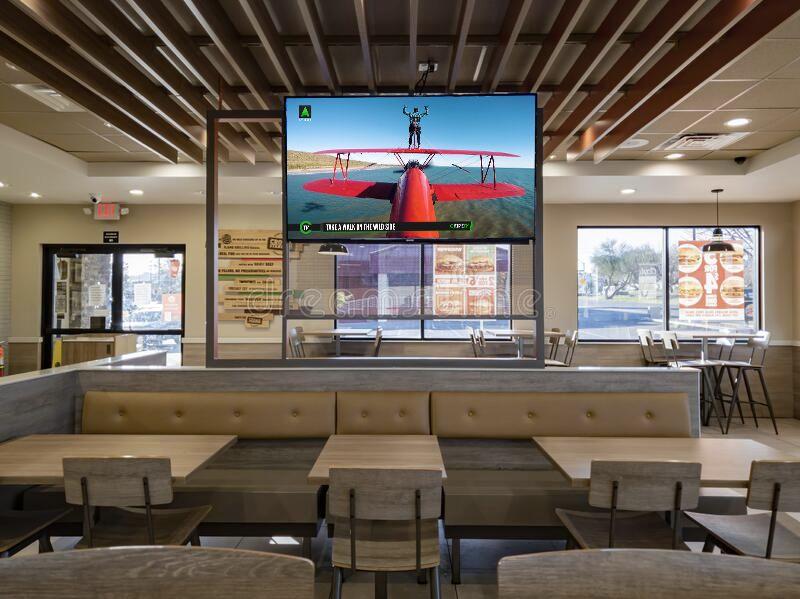
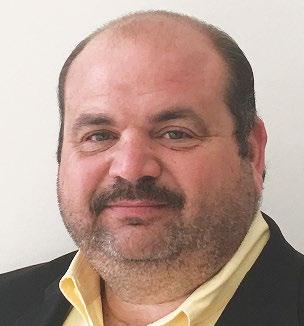

We are excited to announce a new partnership with Atmosphere TV. Atmosphere is the world's first FREE streaming service for businesses. No more “talking heads”, controversial programming, and competitor commercials. Just family-friendly programming that can be enjoyed without the cost of cable. And the best part – it’s FREE to ALL NFA Members!!!

To get started, or if you have questions, contact: Joey Martinez at Joey.Martinez@atmosphere.tv or 512-947-5789
business to lead in addition to their service to the NFA and, in advance and on behalf of all franchisees, I extend to them our appreciation.”

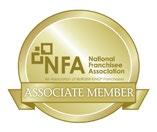


“One of the benefits of adding this role is that franchises will now have more individuals advocating on their behalf,” Josephson said. “I encourage franchisees to reach out to any of the second vice presidents with questions or concerns.”
“Of course, local association leaders and NFA board members also provide excellent leadership experience,” Fitzpatrick added. “Through all these roles and more, we are hopeful that franchisees will step to the forefront of future NFA leadership positions.” n
reach Ireland at 678-797-5065 or seani@nfabk.org.
24 | 2021 ISSUE 1
SEAN IRELAND is the NFA director of communications. You may
NFA
“Our organization ensures that both sides have equal say. Without us stepping up to the plate, there would be no voice for franchisees.”
– Russ Lo Bello
“Participating at a higher level exposes me to those opportunities beyond my influence in the restaurants.”
– Andrew Schory
CUT EXCESS CABLE BILLS ELIMINATE PERCEIVED WAIT TIMES ENGAGE YOUR CUSTOMERS IN A WHOLE NEW WAY

Supporting you through the good times and the bad The Elevanta Insurance Program is administered by Lockton Affinity, LLC d/b/a Lockton Affinity Insurance Brokers LLC in California #0795478. Coverage is subject to actual policy terms and conditions. Policy benefits are the sole responsibility of the issuing insurance company. Coverage may be provided by an excess/surplus lines insurer which is not licensed by or subject to the supervision of the insurance department of your state of residence. Policy coverage forms and rates are not subject to regulation by the insurance department of your state of residence. Excess/Surplus lines insurers do not generally participate in state guaranty funds and therefore insureds are not protected by such funds in the event of the insurer’s insolvency. Elevanta will receive a royalty fee for the licensing of its name and trademarks as part of the insurance program offered to the extent permitted by applicable law.
most.
the
and
better
place.
Some years are better than others, and 2020 was certainly a challenge for
With all
change
uncertainty, there is no
time to ensure you have the right business insurance in
policy
risk
Get support at Elevanta.LocktonAffinity.com or by contacting Lockton Affinity at Elevanta@LocktonAffinity.com or (844) 403-4947.
Like always, co-brokers Lockton Affinity and Elevanta are here to support you—whatever 2021 looks like for your business. In addition to servicing your insurance needs, we offer complimentary
reviews and
management tools.
GRC Continues Fight Against Minimum Wage Increase

Since well before the start of the new presidential administration and the Democratic takeover of Congress, the National Franchisee Association (NFA) has been preparing to fight a barrage of anti-business legislation.

Members of NFA’s Government Relations Committee (GRC) have launched an effort against one of Democratic leadership’s top priorities – a push for a federal minimum wage of $15 per hour, up from $7.25. From educating members of Congress to keeping NFA membership up to date on the issue, the GRC has focused on defeating or blunting a minimum wage increase, which has the potential to harm small businesses and saddle the U.S. economy with unemployment and inflationary challenges at a time when the nation is still recovering from the effects of the coronavirus pandemic.
It’s long been known that President Joe Biden views an increase to the minimum wage as a top priority for his administration. During his 2020 campaign, Biden said he “firmly believes all Americans are owed a raise, and it’s well past time we increase the federal minimum wage to $15 across the country.”
Shortly after Biden’s inauguration, the Raise the Wage Act of 2021 was introduced in the Democratically controlled U.S. House of Representatives. The bill would gradually increase the federal minimum wage from its current level to $15 per hour over five years. Following that, the federal minimum wage would be indexed to median wage growth. The increases (to begin the third month after enactment) would be:
• Year 1: $9.50 per hour
• Year 2: $11 per hour
• Year 3: $12.50 per hour
• Year 4: $14 per hour
• Year 5: $15 per hour
Thereafter, for each subsequent year, the increase would be based on the percentage increase, if any, in the median hourly wages of all employees. The U.S. secretary of labor, through the Bureau of Labor Statistics, will calculate the change by compiling data on the hourly wages of all employees.

Though the minimum wage has been boosted in some individual states, cities and localities, it hasn’t been raised at the federal level since 2009. Biden’s triumph, coupled with narrow Democratic control of the Senate, means that an increase to the minimum wage through the Raise the Wage Act or any other similar measures is a more realistic possibility than it has been in years. By itself, an initiative to raise the wage would need a 60-vote filibuster-proof majority to pass in the Senate, which is unlikely. However, it could be put into a larger budget package and passed by simple majority through a process known as reconciliation.
by MISTY CHALLY
That’s why the GRC’s work is so critical. “The GRC has been fighting this issue for years and with success,” said GRC Chair Brian Robison, a BURGER KING® franchisee with Rob-Kraft Inc., based in Colorado. “The problem we confront on this topic is that people mistake a minimum wage for a starting wage. While many of us may start an employee at a minimum wage, they rarely stay at that level for long. The competition to keep employees is too keen to do that. We must reward those hard-working employees, or we will lose them to someone else. The market is driving our pay, and
26 | 2021 ISSUE 1
that is how it should always be, not rewarding people with annual mandated raises. This stagnates the workforce and promotes apathy and inflation.”

GRC members have been educating key members of Congress about the issue since the start of the year. Though face-to-face meetings are on hold because of the pandemic, the GRC has used Zoom for meetings with legislators and their staffers. On Feb. 4, legislative assistants to Sen. Joe Manchin (D-WV) assured the GRC, including Matt Herridge, vice chair of the committee, a West Virginia constituent and BK® franchisee with Charton Management, that Manchin did not support a $15 minimum wage, but that he may be open to a gradual increase to $11 per hour. As a conservative-leaning Democrat, Manchin will be a key vote for determining whether a minimum wage increase is included in any larger budget package in the Senate.
Additional GRC members have participated in Zoom calls with Reps. Mary Miller (R-IL-15) and Scott Fitzgerald (R-WI-05), two new members of the House Committee on Education and Labor, which has jurisdiction over minimum wage, and both pledged to vote against proposals boosting it. The GRC had other meetings scheduled with Rep. Diana Harshbarger (R-TN-01), another new member of the House committee, and Rep. Troy Nehls (R-TX-22), a member of the Committee on Transportation and Infrastructure.
The message being delivered to these members of Congress is clear. “If the federal minimum wage would increase overnight to $15, resulting in a nearly 60% increase in my labor costs if I pass on those commensurate increases to all employees, I would have no choice but to immediately raise prices dramatically, decrease the number of jobs as fast as possible and likely close many restaurants,” Herridge said. “We have seen what happens in states that have done this already: closures, job losses and further erosion of a middle class. The states must be allowed the autonomy to set the minimum wage as appropriate to their cost of living.”
Throughout the year, the GRC has regularly updated NFA members about the status of minimum wage initiatives. When an increase was introduced as part of a COVID-19 relief bill soon after Biden took office, dozens of NFA members answered a GRC action alert to contact their senators about excluding it from the package, and it was soon voted out.

Help is still needed to educate and advocate against the Raise the Wage Act with key senators who will have critical roles in determining the fate of minimum wage initiatives. BURGER KING franchisees with restaurants in Arizona, Colorado, Delaware, Maine, Montana, Nevada, New Hampshire, New Jersey and West Virginia are urged to reach out to the senators in those states by calling or going to the NFA Legislative Action Center at www.nfabk.org/advocacy-government-support/action-center/ and sending a pre-drafted, edited letter that goes directly to their offices.
“The GRC will always continue to promote these ideas but the stories must be told,” Robison said. “We must relate individual stories and how [a minimum wage increase] impacts the bottom line for your employees through lost jobs and lost opportunities to form a resume or perhaps fix a resume. As long as I am chair of the GRC, we will continue to tell these kinds of stories.” n
MISTY CHALLY is the NFA’s vice president of legislative affairs. You may reach Chally at mistyc@nfabk.org or 202-416-0270.

2021 ISSUE 1 | 27
C M Y CM MY CY CMY K ai1613495237101_FlameAd_March2021_Final_r2.pdf 1 2/16/21 12:07 PM
Calling the Shots: What You Should Consider Before Implementing

Vaccine Policies in Your Restaurants
There is hope on the horizon for restaurants as distribution of the COVID-19 vaccine has started across the United States. As the rollout process has picked up across the country, many employers are expressing concerns and treading lightly when it comes to implementing vaccination policies in their places of work. Although the Equal Employment Opportunity Commission (EEOC) has released much anticipated guidance, there have been few mandates from a federal standpoint, and many experts think this might stay that way.
The NFA has researched and talked to franchisees and legal experts to gather information about vaccination policies and what you should consider as a business owner.

When Will My Employees Be Eligible?
In November, the National Restaurant Association expressed concern for employees across the restaurant industry, pushing to

have restaurant workers considered as essential. The association joined 14 other food-related trade groups in writing a letter to President Joe Biden urging food-service workers to be classified in one of the first groups eligible for vaccinations.
The Centers of Disease Control and Prevention (CDC) released its recommended rollout plan, classifying employees in the foodservice industry in phase 1C, one of the first groups to receive the vaccine. These guidelines or similar ones are being established by state governments across the U.S., but each state and even some large cities have implemented their own plans according to what best fits their situations. South Carolina, New Hampshire, Rhode Island and Utah are all implementing age- or risk-based classifications as opposed to work-based classifications.
by SAVANNAH DALY
28 | 2021 ISSUE 1
Though several states and large cities are in the process of offering vaccines to restaurant workers, restaurants in many states won’t see vaccines available for their employees until late spring or even the summer.
The Big Questions
There are several big questions looming over business owners’ heads regarding the COVID-19 vaccine: Should we require it for employees? What are the legal implications? Where do I even start with building a policy?
The EEOC does allow employers to mandate the vaccine for their employees, with several exceptions.
• The employee must receive the vaccine at a third-party health care provider or pharmacy that does not have a contract with the employer to administer the vaccine.
• The employer must make accommodations for religious and/ or disability-related objections under Title VII of the Civil Rights Act and/or the Americans With Disabilities Act (ADA).
In a January webinar hosted by the NFA, attorneys from Littler Mendelson P.C. noted that before COVID-19, the firm reviewed and monitored various EEOC cases involving employee vaccinations, and most of the litigation focused on the failure to accommodate based on religious beliefs, practices and observances. This is important to keep in mind when considering a vaccine mandate. You must make reasonable accommodations for employees who refuse, such as social distancing and wearing personal protective equipment.

Despite it being legal, many employers are questioning the moral implications of mandating the vaccine. Varying opinions regarding the side effects, effectiveness and quick development
of the vaccine are causing many individuals to remain hesitant to take it. In a recent study by workforce technology company Harri, about one-third of restaurant, hotel and other hospitality workers indicated they don’t intend to be vaccinated against COVID-19, largely because of fears about the aftereffects.
Charton Management, which operates nine BURGER KING® restaurants in Ohio and West Virginia, has decided not to implement any type of vaccine policy and instead is relying on employees to decide on their own. West Virginia has provided an online signup system that is currently open for everyone. Residents are encouraged to preregister and are contacted when they are eligible to receive their vaccine.
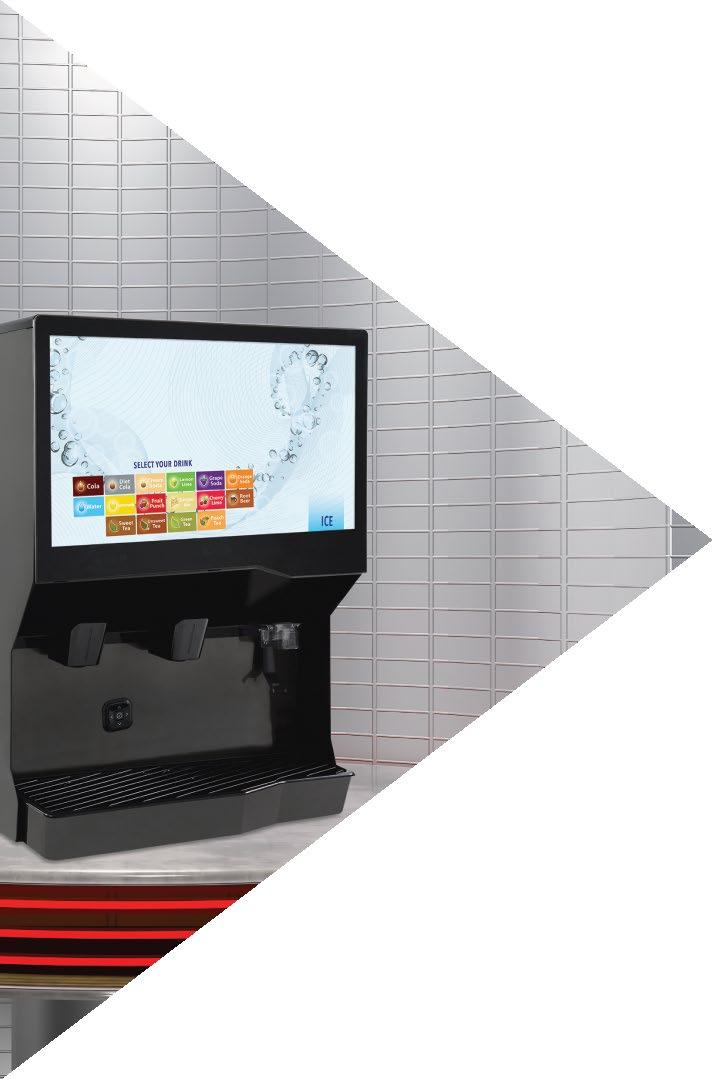


The company hopes that keeping its hands out of the vaccination arena will help it avoid the risk of liability. According to Matt Herridge, co-owner of Charton Management, he has not received any questions from employees about a vaccine policy.
In the same vein, many employers who are making the decisions to develop a policy are making personal choice a priority. Restaurant brands such as Chipotle and restaurant parent companies such as Yum! announced they will not be implementing a mandate, but instead strongly encouraging vaccinations.
BK® franchisee Carolina Franchise Holdings is taking the same stance. In its 36 units across the Southeast, the company plans on encouraging the vaccine for its team members, but ultimately supports each employee’s own decision.
“We developed the current vaccine policy with the first priority being taking a supportive stance to each employee’s personal choice,” said Chief Operations Officer Benjamin Wasser. The company has provided resources and support for employees looking
Continued on page 33
2021 ISSUE 1 | 29 24 Brands (16 Chilled/8 Ambient) 4.0 oz/sec Flow Rate All Common Ice Types Hygienic Valve & Ice Dispense Learn more about our boldest dispenser yet at lancerworldwide.com/flame Pour Bold or Go Home Introducing the IBD Bold 30iTM, the next generation of beverage dispensing.
Franchisees Adopting New Tech to Improve Operations



The coronavirus pandemic and its effects may have slowed economic growth in the United States, but it quickened the pace at which people have integrated technology into their daily habits and business activities.
People forced to work from home who had never heard of Zoom at the start of 2020 have become proficient at using it to join or host meetings and make presentations. Smartphones – already never more than an arm’s length away before – have become even more invaluable as a tool for ordering delivery of food and groceries and other goods, completing work away from the office and staying connected to co-workers, friends and family.
The list of the ways technology has become more ingrained
into daily life is exhaustive, and it will continue to diversify and grow as people and businesses find the best ways to use what they’ve learned during the last year. The pandemic forced organizations to change their operations to accommodate the realities of combating the disease, with tech often providing a new way forward, and it will continue to provide opportunities for more efficient operations after the pandemic.
by SEAN IRELAND
With the world poised to enter an age with so many new frontiers and so much potential for change, taking advantage of it requires companies to be nimble and willing to explore new ways
30 | 2021 ISSUE 1
of doing things. Leaders with the right attitudes make sure that their companies are both.
Quick-service restaurants (QSRs) and the restaurant industry were particularly hit hard by the pandemic when dining rooms were closed last year by government mandates, shifting all business to drive-thru or takeout. But the disruptions may also mean they are particularly well-positioned to explore and adopt new technologies.
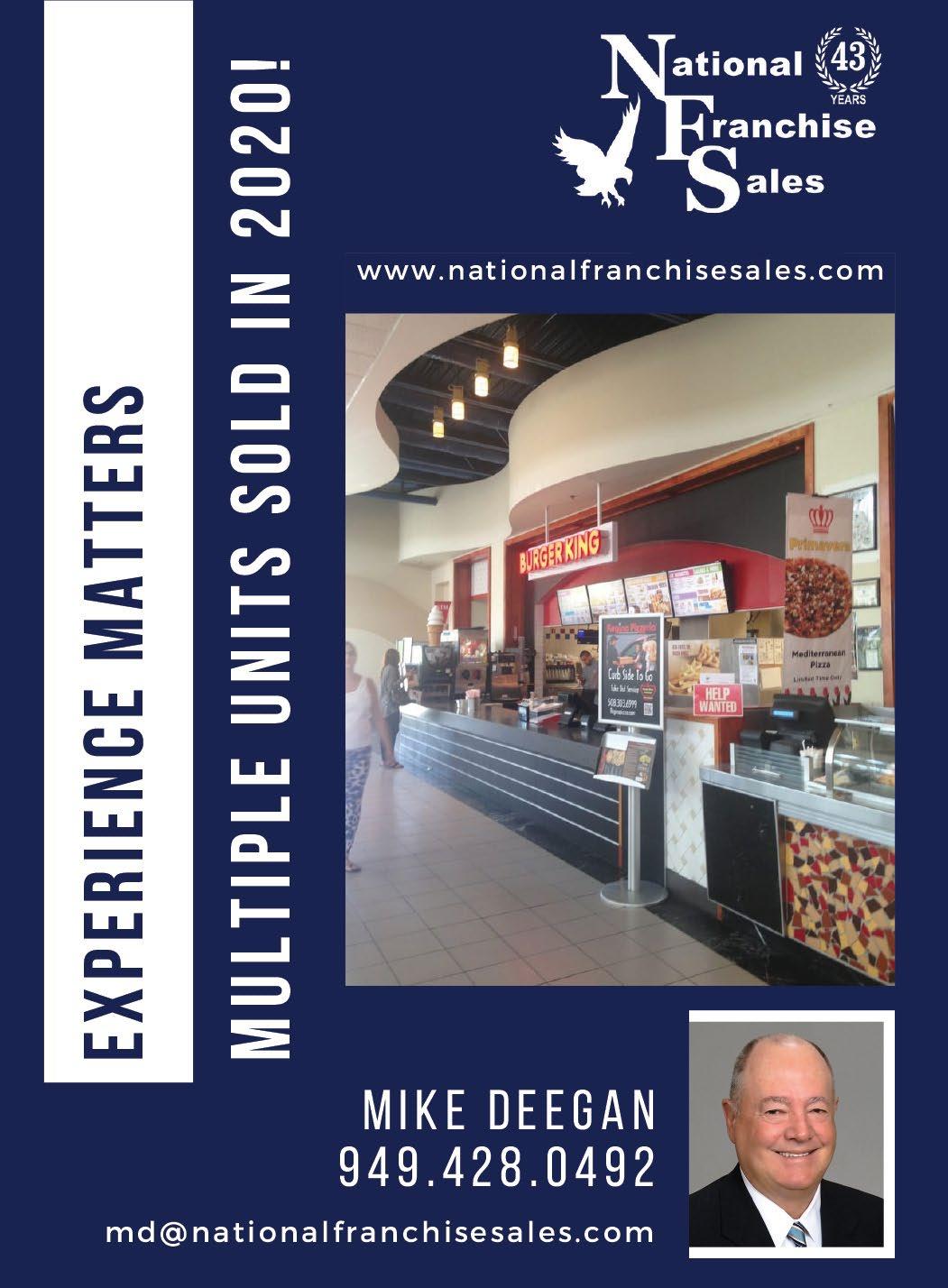
“We are making a push to understand everything digital – we are constantly pushing ourselves to learn more about delivery, mobile ordering and digital advertising,” said Andrew Schory, president of JPL Management Inc., which operates 16 BURGER KING® restaurants. “We are in the middle of it, but we still have so much to learn about using it to move our business forward.”
There will always be more to learn, but success comes to those willing to explore the options, find what works for the needs of their organizations and commit to it through installation and integration, all while keeping in mind that it should help to serve the mission, not become the mission.
Early in the pandemic, Bennett Management Corp., with 25 BK® locations, looked for ways to better manage the shifts in the business. “We have had a large development surrounding mobile payments and third-party integrations. With the tremendous surge in those systems, we had to make modifications to in-restaurant routing and order queues,” said Brent Simmons, senior director of information technology for Bennett Management. “The new digital order integrations are certainly streamlining our operations teams. They have one order queue to focus on that represents several different ordering points.”
The 36 BK restaurants operated by Carolina Franchise
Holdings have also had tech upgrades in recent months. Additions include digital thermostats, a fully integrated data reporting system and an in-house accounting platform in addition to outdoor digital message boards at all locations. “All the new technology platforms we have placed in our stores and integrated into our routines have made tremendous improvements in our operations and profitability,” said Benjamin Wasser, chief operating officer. “We are understanding our business at a level that will help us continue to grow in our market. I am a big believer that we need to continue to be on the cutting edge of technology to be at the forefront of the QSR space.”
In that same vein, JPL Management is exploring usage of a computerized maintenance management system, streamlining office functions and automating as much as possible. The company is preparing to switch to digital inspections and plans to add a digital daily planner to operations.

Communication has been a particular area of transformation influenced by technology. JPL Management added webcams and headsets to all locations and its headquarters and uses the equipment to facilitate regular virtual meetings. “This allows us to have shorter manager meetings without the need to travel,” Schory said. “We are able to add in office staff, marketing and maintenance staff that are not otherwise able to join these meetings. The cost to add was a significant upfront expense, but we have reduced labor costs and meeting expense.”
Some companies, such as Carolina Franchise Holdings, are finding that shifting to virtual meetings has improved the quality of their communication. “We have adopted the Teams platform with Microsoft. This is a great platform to get everyone face to face in a

2021 ISSUE 1 | 31
Guests
mints
feel special and valued. Mints are an extra touch that leads to increased revenue! ~
Join other Burger King Franchisees, who are using tasty BK® Mints as a simple treat that keeps customers coming back. 61% REPEAT CUSTOMERS. INCREASED CUSTOMER LOYALTY. A BOOST IN YOUR BOTTOM LINE. Visit hospitalitymints.com to get started with custom-wrapped mints today. Now at’ s SWEET!
“
love
and
BK® Franchisee Owner ”
Continued on page 32
New Tech
Continued from page 31
safe environment,” Wasser said.
“We have certainly shifted our communication strategy from in-person to virtual,” Simmons added about Bennett Management’s communications strategy. “This has led to the implementation of Microsoft Teams for telepresence and unified communications with our fragmented physical workforce. We hold regular virtual meetings – with webcams on – to stay connected and keep the nonverbal communication pathways active. Some of our office staff have been isolated, and the virtual meetings have brightened their day to see and talk with their colleagues.”
With increased emphasis on drive-thru because of the pandemic, one of the biggest areas of tech integration in the BK system has been the adoption of outdoor digital message boards. Across the system, franchisees are in different stages of consideration, planning and installation.
BURGER KING parent company Restaurant Brands International is encouraging their adoption at drive-thru lanes across the system as well as with sister brands Popeyes and Tim Hortons. The boards offer capabilities for contactless payment options, integrated loyalty plan features and predictive analytics that provide menu suggestions to customers based on their past orders, the time of day, the weather and trending food products.
Carolina Franchise Holdings has them installed at all its 36 locations. “We have seen nothing negative since the installs,” Wasser said. “We have clear, crisp boards for our customers, check averages have increased and our order accuracy continues to improve each day.”

“We have put [boards] in our new locations and newly remodeled locations,” Schory said of JPL Management. “They do drive purchase behavior and improve our presence in our community.”
Drive-thru improvements are not limited to the message boards, however. Carolina Franchise Holdings looked inside the kitchen to see where it could close gaps in service. “We revamped our whole scheduling process around better staffing and positing during the different dayparts,” Wasser said. “We integrated what we call set scheduling, which is a scheduling method where employees are always assigned the same time slots to work.”
Wasser said drive-thru sales trends are studied by 15-minute increments, and scheduling is built around those needs. “By utilizing the set-scheduling routine, we give our employees the peace of mind that they will know what hours they will receive each week and a consistent schedule, hire for the correct positions and timeframes, and give employees two days off back-to-back. Since we have created and implemented this system, we have seen significant improvements in turnover, operations proficiency and profitability.”
JPL Management has added bump-outs to drive-thrus at new locations and double drive-thru lanes during remodels, and those changes are already proving their worth by outperforming single lanes.
Bennett Management has focused on simple things such as better organization for pick-up areas, clear signage and repositioned kitchen monitors and printers, all with the goal of making clean and clear handoffs from the kitchen to expediting to the cashier to the customer. “We’re looking at restructuring, either temporarily or permanently, the way orders are handled in the kitchen,” Simmons said. “If the current trends hold to a supermajority of
takeout/drive-thru, we may eat into dining room space for food production and/or order staging. This would include additional kitchen monitors and production lines. We are also increasing our available internet bandwidth as well as redundant communication systems. Software-defined wide area network (SD-WAN) and other technologies will help support our continued off-premises-ordering platforms.”
Not every technology investment has to be a large one or represent a paradigm shift. Even the small things can make a positive impact on operations. Anything that boosts safety, revenue opportunities or efficiency is worth exploring. Each of these organizations makes a concerted effort to look forward, examine possibilities and, when they are appropriate for the business, commit to adopting and integrating new technologies.
“There are many different platforms that we are in the works with as we speak,” said Carolina Franchise Holdings’ Wasser. “I believe that technology is the forefront of this business, and we have dedicated an entire team this year to integrate, streamline and adapt all locations with the best tech platforms that we have at our disposal. We are really challenging the team to look at the business and everything we do and to find a better, simpler way to conduct our operations that allows the field to stay focused on the customers and not the back office. This is our goal; we want to centralize and streamline anything and everything for our teams.”
“I think we all must realize that each day the world is changing,” he added. “The way we used to view and or do something may not be relevant and or the best practice anymore. I believe those who can adapt with technology and welcome it into the business will be the ones who succeed.”
The key is to keep focusing on new technologies as the tools to help restaurants better accomplish their missions, rather than as shiny new toys that are cool to have. No matter how they can help improve performance, the mission doesn’t change.
“Like most industries, the more available we can be to our customers, the higher the chances of a successful sale,” Simmons said. “If we can be on all platforms, both physical and virtual, and deliver a quality hot and fresh meal – without overwhelming our operations and finance teams – we see nothing but continued success in 2021.” n

32 | 2021 ISSUE 1
SEAN IRELAND is the NFA director of communications. He may be reached at seani@nfabk.org or 678-797-5165.
“I believe that technology is the forefront of this business, and we have dedicated an entire team this year to integrate, streamline and adapt all locations with the best tech platforms that we have at our disposal.”
– Benjamin Wasser
Vaccine
Continued from page 29
for advice on vaccination.
Wasser says the response from team members has been very positive. “Our employees have shown gratitude for the support from the organization based on their personal choices.”

Incentives: Giving an Extra Push

Another option that many companies are considering is incentivizing their employees to receive the vaccine. Extrinsic motivation might push workers who are on the fence about receiving the shot to roll up their sleeves.
One of the first major restaurant brands to reveal its policy was Darden Restaurants Inc., which operates several casual-dining brands such as Olive Garden and Longhorn Steakhouse. The company plans to compensate its workers with two hours of pay for each dose of the vaccine they receive. Focus Brands also recently announced that its employees will receive two hours of paid time off (PTO) for each dose.

McDonald’s released a similar policy of providing four hours of PTO for corporate and company-store employees. The other 13,000-plus stores in the U.S. owned by franchisees, however, have been left to implement policies at their own discretion.
This decision is due in part to the 2019 National Labor Relations Board ruling that the corporation was not responsible for actions that were taken at its franchised locations, meaning it is not a joint employer with its franchisees. Experts expect that many franchisors will follow McDonald’s lead and avoid creating a vaccine policy that applies to franchisees, allowing them to implement their own.
While some companies are offering PTO for employees to receive the vaccine, others such as grocers Kroger and Lidl are simply incentivizing with cash. Big-box retailer Target is even covering the cost of a Lyft ride up to $15 each way to the vaccination site.
Data is suggesting that implementing incentives, especially financial ones, might be an appealing route for employers. A poll conducted by analytics firm Perceptyx indicated that 56% of employees would get vaccinated if they were encouraged by their employers, and 60% said they would line up for a shot if their employers offered a $100 reward.

While the EEOC has issued direction on mandating vaccines, many business owners are still wondering about what risks are associated with using incentives for their staff members. On Feb. 1, the NFA, along with over 40 other business groups, submitted a letter to the EEOC asking for more guidance about implementing incentive policies in their businesses. As of this writing, the commission has yet to respond to the letter, but franchisees are encouraged to check the EEOC website regularly for a response, especially if they plan on using an incentive in their vaccination policy.
It is important to note that legal concerns, whether through the ADA, Title VII or even the Genetic Information Nondiscrimination Act, exist whether a company mandates vaccines or simply encourages them. Ultimately, business owners will need to keep their eyes peeled as more information is released to make sure their policies comply. The NFA will keep members up to date on information and best practices regarding vaccination policies through email communications and the website, www.nfabk.org. n
SAVANNAH DALY is the NFA communications coordinator. You may reach Daly at 678-439-2288 or savannahd@nfabk.org.

2021 ISSUE 1 | 33
Bold Steps Forward to Meet an Evolving Purchasing Landscape
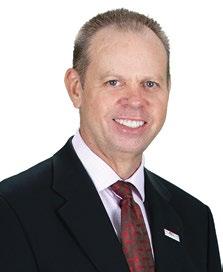

RSI Applies Learnings to Embolden its Purchasing Strategies in a Post-COVID-19 World and Successfully Deliver on its Unwavering Mission
The world – the way we work and live and the way we conduct business – has continually changed over the past 12 months. For the system’s supply chain, each negotiation or unexpected supplier challenge has brought a new learning and with it an immediate prompt to continually evaluate our approach to the issue or upcoming trend, strengthen our contract strategies and swiftly adjust to deliver on our long-standing promise to RSI members: ensure supply.
Prior to the COVID-19 pandemic, our industry was facing the issue of supplier consolidation. This can help vendors quickly expand and improve support for their customers. However, it can also have negative implications for the supply chain, reducing competition, increasing prices and sometimes resulting in a take-it-or-leave-it attitude taking center stage during a negotiation. To address these dynamics, RSI’s purchasing team, led by 28-year industry veteran John Sutton, vice president of purchasing, leverages its deeprooted expertise and long-standing and respected relationships with its suppliers to find solutions that benefit all involved, most pressingly, our members. Together with the supplier, the RSI team reviews all options, such as longer-term contracts or increased volumes, to maintain competitive pricing.
The pandemic, however, brought an entirely new set of supply chain challenges and disruptions. Some supplier and raw material manufacturing operations became

paralyzed, either closing due to lockdowns implemented by local governments or operating at limited capacity because of the numerous COVID-19 outbreaks and stringent social-distancing practices. Labor shortages and distancing measures on the manufacturing lines, paired with the added expense of personal protective equipment –such as gloves, safety glasses, earplugs, etc. – forced many suppliers to request price increases or relief.
Despite these extraordinary circumstances, RSI’s tenured supplier relationships distinguished it from its competitors’ supply chains and were the key to our continued success throughout the pandemic. These invaluable relationships prioritized us for supply and enabled us to move with speed and agility to ensure supply while also building a bridge for future growth. When industries, such as beef and pork, were experiencing raw material shortages due to facility closures, RSI worked with its suppliers to increase safety stocks. For example, on beef, we went from carrying six days of safety stock in May to 18 days by the end of September, a best practice we will maintain post-pandemic to ensure an uninterrupted supply of the core of our business, burgers. Sutton understands and strongly believes in the power of communication. “RSI was built on a bedrock of trust and transparency, and our suppliers expect nothing less from us. When we are approached with a concern, especially a pandemic-related one, our first action is to step back and look at the bigger picture, evaluate the potential impact, have a healthy and honest discussion of the options at hand with both our suppliers and our Burger King Corp. counterparts,
and then deliver strong, yet fair alternatives to achieve the best outcome for our members.”
The pandemic has also led to a surge in the carryout, delivery and drive-thru businesses across the restaurant industry, shifting the focus on items that are required to support them, such as delivery bags and four-cup carriers. Prior to COVID-19, the carrier, for example, would not have been categorized as an RSI “essential” item, but suddenly there was a significant industry shortage, and many were unable to procure this much-needed product. Once again, having been aligned contractually with our carrier supplier, we were not only able to obtain this critical item, but we secured it at a very low price compared to the rest of the market. Conversely, items associated with dining in, for example the BK® crowns, have been impacted, and our suppliers have had a surplus of inventory since March 2020. RSI continues to deliver honest dialogue with its partners as we refocus and redirect particular items and the shifting roles they play in the popular business models. Collectively, the challenges and opportunities, best practices and lessons will continue through the foreseeable future. “Maintaining the integrity of our relationships, upholding the proven philosophies in our contracting process, and evolving and adapting our strategic approach based on changing industry imperatives will continue to ensure our success amidst uncertainty,” said Sutton. “We have undoubtedly fared better than many of our counterparts because of RSI’s strategic positioning, nimble planning and an esteemed reputation that we have proudly built since 1992.”
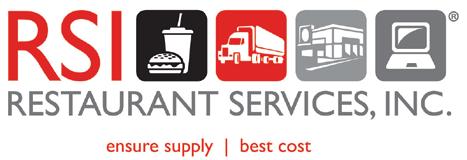
34 | 2021 ISSUE 1
n

Jim Myers Retires From BURGER KING

As many of you know, our dear friend and leader, Jim Myers, has retired from Burger King Corp. and will be retiring from his duties with the Burger KingSM Foundation at the end of March. While we will miss his wisdom and guidance immensely, we are very happy for Jim that he will soon begin his next chapter.

Jim has spent nearly 40 years with the BURGER KING® brand, always an advocate for our franchisees and a true partner in every sense of the word. NFA Chair Dan Fitzpatrick puts it best, saying Jim is “BK®’s Common Sense Officer.” Jim’s many

36 | 2021 ISSUE 1
Jim has spent nearly 40 years with the BURGER KING® brand, always an advocate for our franchisees and a true partner in every sense of the word.
Myers, left, at the 2019 NFA LEAD Conference, has been a familiar face to BK franchisees as the brand’s head of North America business development and franchising, a role that he exited recently.
most. As you know, our emergency relief grant program provides short-term assistance to our employees suffering hardship. We ask you to help us honor Jim by contributing to this fund, which has been so close to his heart for so many years. We can’t think of a better way to say thank you to Jim for all he has meant to
BURGER KING and the Burger KingSM Foundation.


You can contribute to the Family Fund by visiting bkmclamorefoundation.org/donate/ and selecting “Burger King Family Fund” under the “Designation” drop-down menu. You can also click “Tribute Gift” to let us know your donation is given in honor of Jim. We will share with him the list of contributors who gave in his name. As always, we encourage you to share information with your team members about the resources available through the BKSM Family Fund. To apply, visit familyfund.bk.com.
Jim, we cannot tell you how much your leadership, dedication and friendship have meant to us. We wish you all the luck and happiness in your next adventure!
– Your Burger KingSM Foundation team




contributions will not soon be forgotten; his accomplishments and impact during his time with us are immeasurable. In 2012, he joined the BKSM McLamore Foundation board and began serving as president in 2017. During his tenure, Jim helped raise more than $50 million for the communities in which our franchisees work and live around the world.
Jim has always been passionate about the Burger KingSM Family Fund and helping our BK family when they need us the
2021 ISSUE 1 | 37
℠
Jim Myers, left, with members of his family, is retiring from duties with the Burger King Foundation in March.
What Workplace Changes Can We Expect in the First Year of President Biden?
What Workplace Changes Can We Expect in the First Year of President Biden?
As this article is being written, we are just over two weeks into a new period of control by the Democrats of two branches of government. In that short time span, President Joe Biden has signed more than two dozen executive orders (EO), some of which address workplace issues, and agencies of the U.S. Department of Labor, including the Occupational Safety and Health Administration (OSHA) and the Wage and Hour Division (WHD), have already taken many actions undoing the impact of the Trump administration. Quite remarkably, although it had been widely assumed there would be no immediate impact on labor unions because the National Labor Relations Board (NLRB) will have mostly President Trump appointees until the end of 2021, President Biden took the unprecedented step of replacing the top two lawyers who decide what cases are brought to the NLRB. These combined actions are causing change in the workplace much more quickly than had been predicted, and in fact occurred, during this same point following President Trump’s inauguration. Will the pace of change continue since the House and Senate are controlled by Democrats? It is Washington, D.C., so probably not, but there is plenty on the horizon that might occur within the next 12 months. Here are a few highlights:

WORKPLACE SAFETY: On Jan. 21, President Biden signed an “Executive Order Protecting Worker Health and Safety.” The EO is directed at workplace changes relating to protecting workers from COVID-19. Last year, OSHA was subject to criticism for allegedly not holding employers responsible for protecting workers from COVID-19 and for not issuing a new safety standard directly addressing COVID-19. OSHA had released guidance earlier in the pandemic, based on existing safety standards. The EO directed OSHA to issue revised guidance within two weeks, to consider whether an emergency temporary standard (ETS) should be issued and to do so by March 15, review and revise enforcement activity to “better protect workers and ensure equity in enforcement[,]” and take further actions. Within days of the EO, OSHA responded by issuing a “stronger worker safety guidance to help employers and workers implement a coronavirus prevention program and better identify risks which could lead to exposure and contraction.” While the characterization of the guidance as stronger may be
subject to debate, unlike the prior guidance, which was, in part, seemingly contradictory to CDC guidance, the new OSHA guidance explicitly tracks and expands upon the current CDC guidelines.
Whether OSHA will issue an enforceable ETS by March 15 is an open question as I write this at the end of January. OSHA is not known for issuing safety standards quickly, even for significant hazards. That said, the calls for an ETS have been coming for many months, and California’s equivalent of OSHA has issued such a standard that could serve as a starting point for a federal regulation. (In fact, the new guidance adopts elements of that temporary standard.) Thus, there is reason to suspect that OSHA may issue an ETS, if not by that deadline, by the summer; however, as we have seen with new, major regulations, we can also expect there will be challenges to an ETS in court once issued.
by DOUGLAS H. DUERR
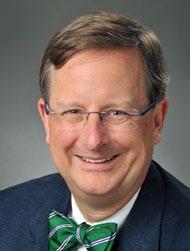
While there are promises of increased enforcement by OSHA, the reality is that funding for OSHA has been cut for years and that it takes a while to train new investigators. Thus, while increased enforcement is likely, it may take a while before that is directly felt in the workplace.
WAGE AND HOUR: In the closing months of the Trump administration, the WHD, which enforces the federal Fair Labor Standards Act (FLSA), issued guidance on the thorny issue of who is an independent contractor as opposed to an employee and issued employer friendly opinions on the legality of certain compensation schemes under the FLSA. Not surprisingly, within days of the incoming administration, that guidance and several opinion letters were withdrawn in addition to termination of a program allowing employers to self-report violations in return for avoidance of penalties. With these actions and the simultaneous change in wording of public statements to “protecting workers,” we can expect the WHD to reorient from an emphasis on educating and providing guidance to employers to an emphasis on enforcement.
In addition to this change in tone, as demonstrated by the inclusion in President Biden’s proposed COVID-19 relief legislation of an increase in the federal minimum wage to $15 per hour

38 | 2021 ISSUE 1
and his EO requiring steps to increase the minimum wage for federal employees to $15 per hour, there will be renewed, and more likely successful, efforts to increase the minimum wage as well as further increase the minimum salary for managers and other white-collar employees to be considered exempt.
PAID LEAVE: Even prior to the pandemic, there had been calls by now-President Biden and the Democratic Party for a federal mandate for paid leave. While his proposed COVID-19-relief legislation provides for an extension and expansion of paid leave for absences due to COVID-19 through the continued use of tax credits, if that effort is successful, which seems likely, we can expect an effort later this year to expand paid leave to other types of absences.
DISCRIMINATION BASED ON SEXUAL ORIENTATION AND GENDER IDENTITY:
Prior to assuming office, President Biden stated that a legislative priority in his first 100 days was passage of the Support Equality Act (SEA). The bill passed the House in 2019, stalling in the Senate. While the workplace impact of passing SEA may be limited following the U.S. Supreme Court’s ruling in July that current civil rights laws prohibited workplace discrimination based on sexual orientation and gender identity, we can expect increased enforcement efforts to prevent workplace discrimination of LGBTQ individuals regardless of whether the SEA is passed.
LABOR UNIONS: As noted previously, until President Biden’s sudden removal of the top two lawyers of the NLRB, which is responsible for enforcing the National Labor Relations Act’s



protections for employees who act collectively on the terms and conditions of employment, little change in the employer friendly decisions of the NLRB had been expected until at least the end of the year. While the new Secretary of Labor (currently anticipated to be Marty Walsh but almost certainly a pro-union supporter whoever is approved) can take actions supportive of organized labor, it is the NLRB that has the greatest impact. While the NLRB is controlled by Trump appointees, it is the NLRB’s general counsel that can select which cases come before the NLRB as well as whether it will continue to prosecute cases awaiting a decision. As such, while President Biden will have a majority of his appointees on the NLRB by the end of the year, we can expect an almost immediate impact in the workplace toward a union friendly enforcement stance.
While it has become increasingly difficult to make predictions about what is to come with the stark partisan divide in Washington, there is little question that with Democrats controlling two branches of government, employers will have a federal environment that is pro-employee and pro-union at the expense of employers. This will present challenges in the years ahead, but if you remain focused on the fundamentals covered in my columns in prior issues of the magazine, you will be well ahead of the game. n
DOUGLAS H. DUERR is a partner at Elarbee Thompson, a national labor and employment law firm with an industry practice area focused on franchisees. Learn more at www.elarbeethompson.com.
www.bkmclamorefoundation.org/donate/


2021 ISSUE 1 | 39
℠
No matter how large or small, your donation will help a Burger King® employee in great need. If you have already donated this year, please encourage your fellow Franchisees and Vendor Partners to support this important cause.
amount you would like to donate ‘Burger King Family Fund’ under ‘Designation’
the
Take Control of Your Internal Controls
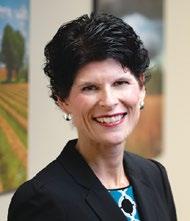
With large amounts of cash, food and other inventory on hand, having weak or no internal controls leaves your organization open to thieves or dishonest employees who are looking for opportunities to make some extra money. From the cash register to the kitchen, there are plenty of vulnerabilities that could lead to fraudulent activity in your business. The good news is there are simple controls you can put in place to deter and prevent fraud.
Consider all the areas in your restaurant that provide opportunities for fraudulent behavior. From the back room to the front of the house, think through every touch an employee has with a product or a transaction.
Look for odd or irregular patterns that might indicate fraud. Get in the habit of spot-checking register reports to look for
anomalies. Instances such as one register having more refunds issued or coupons processed compared to the others, or an increase in voided transactions happening at certain times of the day, can be a signal that will require additional investigation.

Review your authorization processes. Can employees manage voids on their own or are they required to have a manager approve voided receipts? Who is reviewing and tracking voids and refunds?
 by STACY SMITH
by STACY SMITH
Consider using more cashless payment options. It’s easy for a restaurant to fall prey to fraud given the large amount of cash that changes hands at the register. Many restaurants have added cashless payment options or made existing ones more convenient due to
40 | 2021 ISSUE 1
the risk of spreading germs through cash during the pandemic. Even though you’ll pay fees for credit and debit card usage at your restaurant, the benefits often outweigh the costs. Are you offering as many cashless payment options as you can?
Get a handle on your inventory. Don’t let food walk out the restaurant door. Your managers should have tremendous accountability with inventory control. Know what items your staff can freely access and consume and put processes in place to track employee meals.
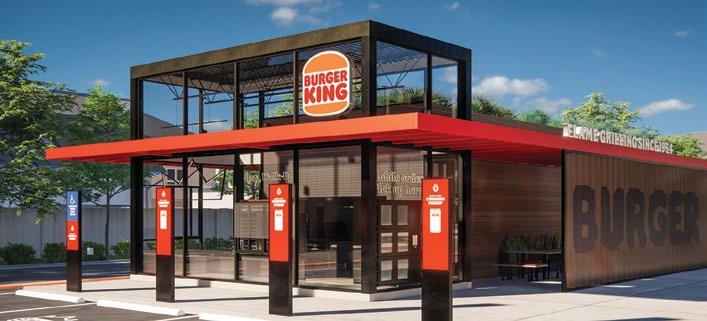
Standardize your processes. Document your house standards and processes and share them with your staff. When do you expect staff to reconcile cash? What is the procedure for closing for the night? Who does it? Do you have checks and balances built into your processes to help reduce fraud?
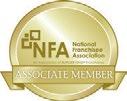
Implement surprise cash counts. Employees who commit fraud often do so when they’ve learned the routine of how your restaurant operates. Just like dropping off bank deposits at random times can throw off a robbery, the same routine disruption works inside your restaurant. If a staff member has been taking cash from customers without entering anything into the register, they’ll probably wait until the end of the night to remove the cash. You can disrupt a potential thief by taking a reading at the register at random times throughout the day.
Perform daily deposit verification. If an employee is taking cash out of the daily bank deposit, and no one is comparing the bank account to the POS reports daily, thousands of dollars can disappear before it is caught at the end of the month. Comparing online bank activity to internal sales reports every day can catch a thief before a large amount of cash is lost.

Invest in POS fraud software. Technology has improved

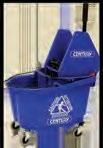
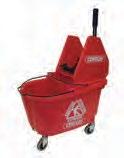







so many aspects of restaurant operations – leverage it for fraud detection as well. Fraud software, integrated with your POS and accounting systems, can help you stay on top of both real and fraudulent transactions. You can also track inventory by ingredient. And some systems allow you to remotely manage or review what’s going on at the cash register at any time and from anywhere through the cloud.
Employees steal less if they know you’re watching. In a study conducted at Washington University in St. Louis, researchers measured the effect of theft and fraud before and after the installation of POS-monitoring software at 392 restaurants in 39 states. The researchers discovered that after installing the monitoring software, revenue per restaurant increased an average of about 7%. Restaurants also experienced a 22% drop in theft. Just knowing that someone could be watching can change employee behavior. Send the message that theft won’t be tolerated. From the moment you hire an employee, communicate your core values and set an expectation that you’re not going to put up with fraudulent activity. Another study conducted at Washington University showed that if new restaurant workers are exposed to stealing peers within the first five months of starting their jobs, they also are likely to become habitual thieves.


There are certainly other small changes and precautions you can implement to decrease the chances of fraud happening in your organization. But these are simple steps you can take now to save yourself a headache in the future. n

2021 ISSUE 1 | 41 Call KAY Customer Service at 1-800-529-5458 centuryproductsllc.com CONNECT2 Recycled Grease Pro Mopheads CONNECT2 54” & 42” Handles NEW & APPROVED FLOORCARE PROGRAM CONNECT2 CONNECT2 Hi-Lo Scrub Brush CONNECT2 Upright Brooms INCREASED PERFORMANCE, DURABILITY = REDUCED COSTS Contact us today to find out more about our new, approved program. ® • Universal two-piece powder-coated steel handle • Light-weight and ergonomic • Nylon connection for improved durability and secure t C M Y CM MY CY CMY K ai159829499411_Burger King Flame Ad 8.13.2020 version 5.pdf 1 8/24/2020 2:50:13 PM Branded projects are where our products and people really shine. Cummings continues to be a trusted resource for Burger King owners and franchisees. Place your order for new sign packages today! ASHLEY DUNCAN | Project Coordinator ashley.duncan@cummingssigns.com DAN BELLING | VP Sales & Marketing dan.belling@cummingssigns.com ALL SIGN TYPES DIGITAL MENU BOARDS WAYFINDING DRIVE -THRU PICK-UP FINANCING AVAILABLE | 1-800-489-7446 | CUMMINGSSIGNS.COM
STACY SMITH, CPA, is a shareholder with Mize CPAs Inc. – a full-service accounting firm that has provided the Elevanta Accounting & Payroll Solution since 2003.
Why Do You Do What You Do?
As we get into the meat of 2021, would you like a way to engage (or reengage) your people in creating loyalty-driving customer experiences? A proven way to accomplish this is to reconnect your employees to the purpose of what they do. Employees who understand the true purpose or bigger picture of their jobs will always perform better than those who see their role as simply completing a series of tasks.
What I’m talking about is creating a purpose statement for your organization (or refining the one you already have). I’m fully aware that when I talk about things like purpose statements, some folks roll their eyes because they see creating things like purpose statements as meaningless, consultant-driven exercises. And it can be a meaningless exercise if the purpose statement is created as just an exercise.
But when created and used strategically, an effective purpose statement can mobilize people to do things they never thought possible. To focus on something beyond themselves. President John F. Kennedy verbalized a powerful, motivating purpose statement when he said in 1961, “I believe that this nation should commit itself to achieving the goal, before this decade is out, of landing a man on the moon and returning him safely to Earth.” Not a lot of words in that statement, but it’s pretty clear what the purpose was. And tens of thousands of workers focused themselves on that purpose, and they succeeded spectacularly.
From a business perspective, I must share the power that The
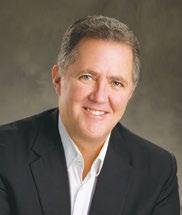


Walt Disney Co.’s purpose statement had on me. The statement was simply this: “We create happiness by providing the finest in entertainment for people of all ages, everywhere.” This simple statement provided a context for why I was loading people on rides, answering the same question for the thousandth time, helping guests find a particular attraction or picking up a stray piece of trash off the ground. I was creating happiness, and that was a pretty special job to have.
by DENNIS SNOW
An effective purpose statement answers two questions:

What do we create?
How do we create it?
Pretty simple, huh? I think any organization can get its arms around these two straightforward questions. The problem comes when an organization overcomplicates the process, creating a statement two pages long that no one in the organization can even recite. The secret is to keep it simple.
Here are a few examples of effective purpose statements from my experience:
the Walt Disney Co.
As I mentioned earlier, the company’s purpose statement is, “We create happiness by providing the finest in entertainment for
42 | 2021 ISSUE 1
people of all ages everywhere.”
What does Disney create? Happiness. How does it create it? By providing the finest in entertainment for people of all ages, everywhere.
First Citizens IBank

“We build life-enhancing relationships by helping our customers identify and achieve their financial goals.”



What does First Citizens Bank create? Life-enhancing relationships. How does it create it? By helping customers identify and achieve their financial goals.
Cool Cuts 4 Kids (hair salon for kids)
“We create excitement by engaging our customers in a fun, friendly, family experience.”

What does Cool Cuts 4 Kids create? Excitement. How does it create it? By engaging customers in a fun, friendly, family experience. Again, pretty simple. But powerful when used as a tool to align the performance of your team. These statements are easy to explain, train and coach. They’re easy to keep top of mind. I’m not saying that such statements are magic in themselves; they’re not. They must become embedded in the organization’s culture. They must become second nature. But when they do become second nature, they come close to being magic.
An effective purpose statement focuses your team on what you are really selling beyond the physical product or service. It focuses your team on the WHY behind that product or service. Remember the old sales expression: The customer doesn’t need a half-inch drill bit, the customer needs a half-inch hole. Focusing on the why takes things to a whole new level.
Lots of ways exist to create a purpose statement for your
organization. You might decide to do it yourself. You might decide to put together a small team to create it. Or, if appropriate, you might decide to engage everyone in the organization in creating it. Just don’t let the statement evolve into “committee-speak.” Keep it simple and just answer as concisely as possible, “What do we create, and how do we create it?”
I know that you might not be responsible for the entire organization. You can do this at the department level as well. What does your department create? How do you create it? You can do this regardless of your sphere of influence. You could even do it just for yourself if you’re not in a leadership position. That’s not a bad idea if you want to create real value for your organization by creating real value for customers.
As I mentioned earlier, a purpose statement isn’t magic. It must be communicated relentlessly and built into new-hire onboarding and ongoing training. It must be coached and celebrated at every opportunity. But when done with a clear purpose and embedded in the culture, an effective purpose statement can be a game changer.
So, here’s something to think about: What does your organization create, and how do you create it? n
DENNIS SNOW is the president of Snow & Associates Inc. Dennis worked with The Walt Disney Co. for 20 years and now consults with organizations around the world, helping them achieve their customer service goals. He is the author of “Unleashing Excellence: The Complete Guide to Ultimate Customer Service” and “Lessons From the Mouse: A Guide for Applying Disney World’s Secrets of Success to Your Organization, Your Career, and Your Life.” You can reach Snow at 407-294-1855 or visit his website at www.snowassociates.com.
2021 ISSUE 1 | 43 www.rti-inc.com | 888-796-4997 Partnership + Technology: Helping You Deliver On Your Food Quality Commitment, Every Day We partner with Burger King Franchisees to help you deliver on your bottom line results and your commitment to quality, great tasting food through our automated Total Oil Management solution and our hood & flue cleaning system, AutoMist. New Program Pricing Now Available for Burger King Franchisees! Everything good begins with a seed. A market-leading lineup of relevant, delicious foods you can trust—all backed by over 80 years of proven foodservice expertise. simplotfoods.com © 2017 J.R. Simplot Company
Measure Progress and C o n s i red
stnemtsujdA
There are fine but very important lines between different types of groups.
Brainstorming/Mastermind Group – the purpose is for the members to share ideas and build on each other’s ideas. It’s up to the members as to what they do with the ideas they hear.
Department Head Meeting – the purpose is for each person to learn what the various departments are working on and to offer each other information that might help to improve the performance of the departments.

Happy Hour Gathering – the purpose is to give people an outlet to share emotions and stories to allow them to vent and laugh and reenergize.
A Team – the purpose is for the members to support one another to collectively fulfill a meaningful purpose and achieve
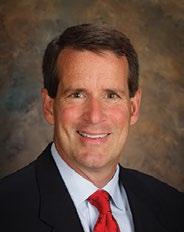

important outcomes.
Teams should be measuring progress toward achieving desired outcomes (tangible) and fulfilling their meaningful purpose (intangible). If the team is making no progress in terms of improving outcomes, then the team is being ineffective. The only way to determine if the team is being effective is to measure its progress.
by DAN COUGHLIN
The Purpose of Measuring Progress Is to Learn
Go back to your high school days. You received grades on tests and quizzes, and you received grades on your report card.
There are two things you could do with those grades. First, you could compare your grades to other people, and the effect could
44 | 2021 ISSUE 1
be a raising or lowering of your self-esteem. Second, you could use your grades as indicators of what you do well and what you need to learn to improve future performances.
Here is my advice to high school students: don’t use grades as an indicator of your self-worth. It’s a game that you will eventually lose regardless of your grades and the grades of other people. Instead use grades as indicators of your performance in terms of what you are doing well and what you are not doing well and use those grades as guideposts for leveraging what you are good at and determining what you can do to improve future performance.
As an adult, I am giving you the same advice. If your sales team numbers are better or worse than your competition, don’t base your self-esteem or your team’s worth on this comparison. Instead use the comparison as a means for learning what the team is doing well and what the team can do to improve in certain areas.
Making Adjustments Is an Ongoing Process of Learning, Tweaking and Applying What Has Been Learned
As you measure the team’s progress in terms of fulfilling its meaningful purpose, the actual grade or number is just the tip of the iceberg. The key is to dig under the result and find out what generated it.
What actions occurred that led to the result?
What decisions were made that caused those actions?
What was the strategy behind those decisions?
Who were the people that developed the strategy, and what did they do that was effective or ineffective?
Who were the people that executed the decisions, and what did they do that was effective or ineffective?
Where were the team members effective in supporting one
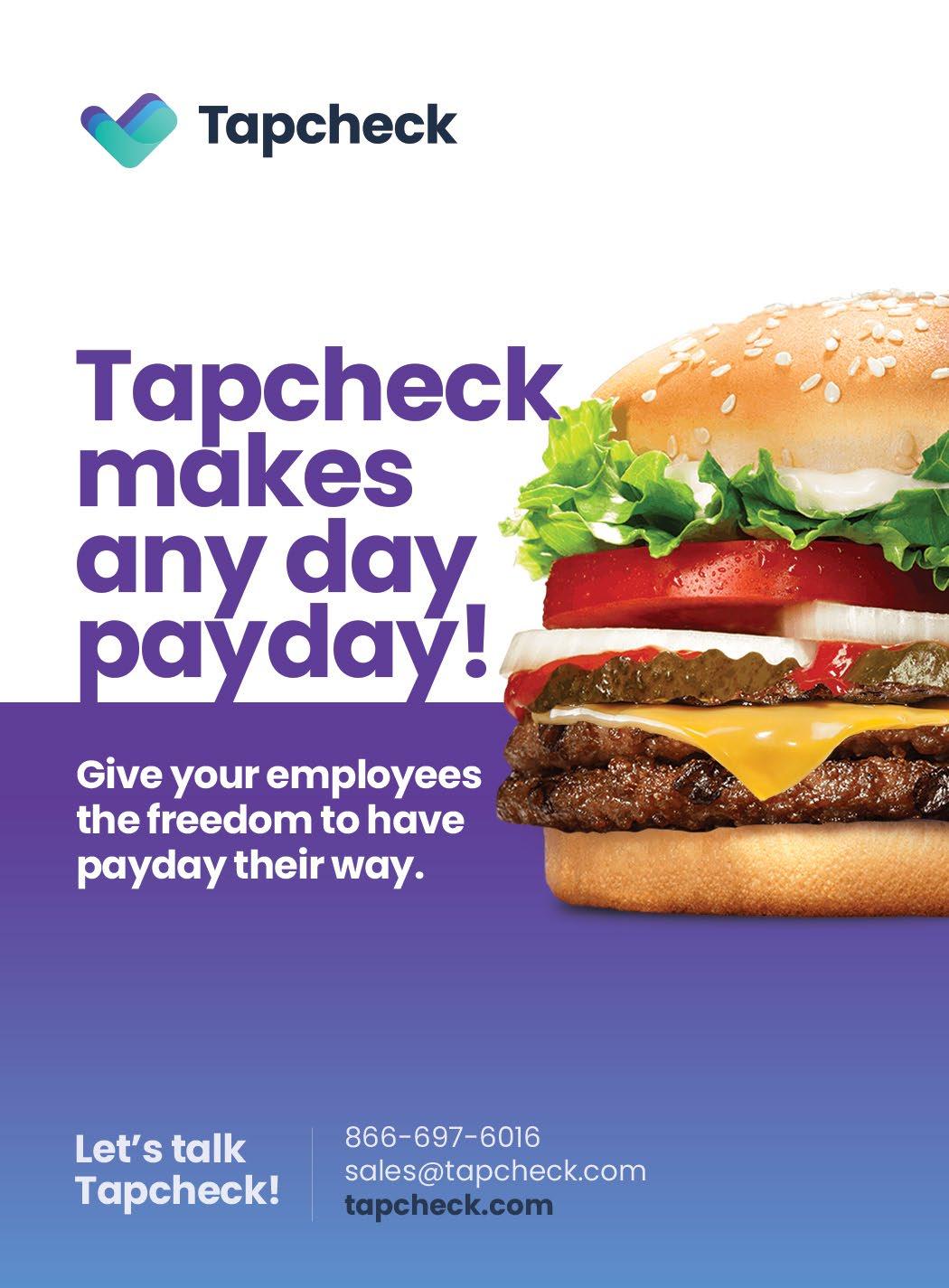

another to improve results, and where were the team members not effective in supporting one another to improve results?

Conclusion
The result is what it is. Don’t base your self-esteem or your team’s worth on the result. Instead use the result as a starting point to dig deeper into understanding the performance that generated the result and to dig deeper into understanding how to improve a future performance. Then make the necessary adjustments to improve the team’s performance. In doing so, you will be guiding the team to continually become more effective in the future. n
DAN COUGHLIN provides both individual executive coaching and group coaching programs on management, leadership and teamwork. To visit his free Business Performance Idea Center, go to www.thecoughlincompany.com.

2021 ISSUE 1 | 45
As you measure the team's progress in terms of fulfilling its meaningful purpose, the actual grade or number is just the tip of the iceberg. The key is to dig under the result and find out what generated it.
Making the Right Choices: Five Observations About Intuitive Vs. Analytical Decision-Making

Making solid decisions is key to effective and productive work at all levels – individual, team, division or corporate. Most of us make a remarkable number of decisions daily; some researchers claim we make thousands, if we include every little choice, like what to eat and which task to do next. In the case of routines, most represent decisions made in advance or enforced by deliberately limited choice, so we spend time more efficiently.
Most decisions are personal and have limited impact on others. But the decisions you make during work hours can impact thousands or even more, depending on your position – not just in your business, but also among your customers. For example, whoever decided that annoying paperclip that haunted Microsoft Office until 2001 was a good idea affected the lives of millions.
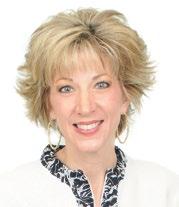

There’s always been some conflict about whether instinctual, intuitive snap decisions or more analytical, deep-thought decision-making works best. Here are some thoughts about both types, and how each can work for you, separately and together.
1We’re naturally intuitive. Most decisions are snap decisions; we’re biologically programmed to use intuition first, for good reason. When you see a snake strike at you from the corner of your eye, you can’t debate what to do; you jump away. When you decide to replace that glitchy old printer/copier, frustration may drive you, but in the back of your mind you also know it’s 10 years old, the manufacturer no longer supports it and it lacks a smartphone interface. Computers can evaluate every possible option and its most likely result; we can’t. Sometimes you just pick whatever seems best, based on pattern recognition, subconscious needs and knowledge borne from experience. Just because a decision is sudden or instinctive doesn’t mean it’s bad. Few instincts are hard-wired; most develop based on experience.
by LAURA STACK
46 | 2021 ISSUE 1
2 Modern business often praises the intuitive over the analytical. Point No. 1 may be a reason why my research for this story was biased toward intuitive decision-making. Businesspeople and their observers have come to respect intuition as a highly valuable business tool. Psychologist Gerd Gigerzer calls it “fast and frugal thinking.” Modern processes like lean manufacturing and just-in-time services often require quick thinking and snap decisions. So do startups.

5 Even when working a plan, intuition is valuable. There was a time when businesses followed five-year and three-year plans. The business world is no longer stable enough for that. With the rise of complex telephony and the World Wide Web, even one-year plans aren’t tenable. We all know that, as in warfare, no plan survives contact with reality. Working with a plan is fine if you remain flexible and willing to divert from the plan whenever productive and profitable. That’s where intuitive decision-making comes in handy.
3





Collective corporate decision-making tends to be via committee and focus groups, which some consider a case of too many cooks in the kitchen. This analytical approach does, however, accomplish several things. It allows decision-makers to hear all aspects of an argument, identifies points that may not have occurred to the group and refines decisions once made. That’s why many organizations and individuals swear on the analytic process of decision-making. Doing your due diligence and homework is required for the more important decisions.
4 They needn’t be mutually exclusive. Often, what we think of as intuition or instinct is like the muscle memory triggered by an activity requiring repetitive, fast response. In time, your muscles automatically react to what you see coming, whether you’re fencing, playing baseball, operating a machine or typing. In the case of decision-making, you’ve picked up and internalized cues and responses from years of work in your field. So, even if a decision somehow seems instinctual, if it isn’t impacted by bias, it’s likely because you’re thinking analytically at a subconscious level based on your knowledge and experience.
Decisions Come, Decisions Go
The continuing debate about instinctive versus analytical decision-making is helpful, because both types of decision-making have their good points. Teams or institutions can benefit from taking the time to work out the decision-making process that works best for them. We value leaders who can merge both types, so that experience and new knowledge from analysis can yield the biggest, best ideas. So do your homework and take new trends and business realities into account; however, don’t undervalue intuition while making decisions. n

LAURA STACK, MBA, CSP, CPAE, is an award-winning keynote speaker, bestselling author and noted authority on employee and team productivity. She is the president of The Productivity Pro Inc., a company dedicated to helping leaders increase workplace performance in high-stress environments. Stack has authored eight books, including “Faster Together: Accelerating Your Team’s Productivity.” She is a past president of the National Speakers Association, and a member of its exclusive Speaker Hall of Fame. To have Laura Stack speak at an upcoming meeting or event, visit www.TheProductivityPro.com.
Raising The Bar.
Raising The Delicious.
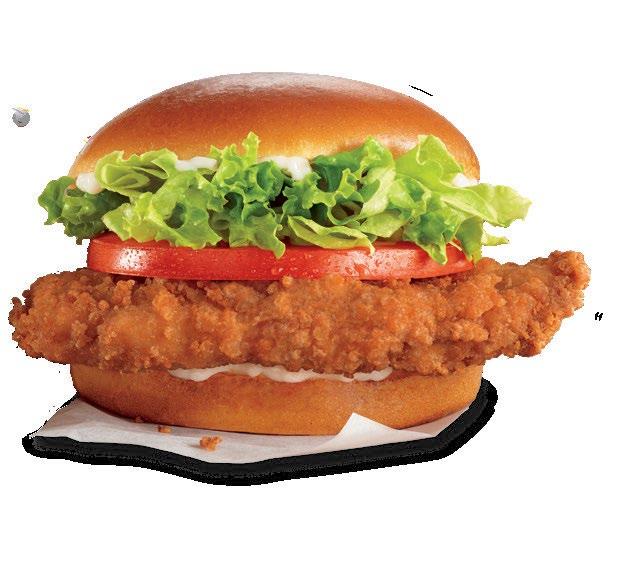




2021 ISSUE 1 | 47 ©2020 Tyson Foods, Inc. All other trademarks and registered trademarks are owned by their respective owners.
Tyson Foods is proud to partner with Burger King® for menu breakthroughs like the Crispy Chicken and Chicken Fries. As one of the world’s largest protein producers, it’s an honor to team up with the Burger King® system supplying products made with clean ingredients including tacos, chicken, tortillas and more plus innovation along the way.
Guide
2021 Editorial Calendar
Call for Franchisee News


FLAME, Issue 2 is due out July 2021. We want to highlight any news or events associated with our members. If you have ideas for potential stories, please contact communications@nfabk.org or 678-797-5165 by June 11. Our editorial staff can assist in writing the story for you.

48 | 2021 ISSUE 1
2021 Day on the Hill IB 2021 LEAD Conference 3 Acrelec America 14 412-537-6577 bksmartstore@acrelec.com Atmosphere TV 24 512-947-5789 Joey.Martinez@atmosphere.tv BURGER KINGSM Foundation 37, 39 awerner@rbi.com www.bkmclamorefoundation.org/donate/ Cummings Resources 41 1-800-489-7446 cummingssigns.com Ecolab 41 1-800-529-5458 centuryproductsllc.com Elevanta Health 5 678-797-5160 elevantahealth.com/nfa Global Building Contractors 29 1-800-257-9442 www.gbc.llc Gycor International 7 800-772-0660 www.gycorfilters.com Integrated Cash Logistics 14 412-906-0720 www.integratedcashlogistics.com Lancer Corp. 29 904-631-1031 lancerworldwide.com/flame Lockton Affinity 25 844-403-4947 Elevanta.LocktonAffinity.com Keurig Dr Pepper BC 561-236-8123 kelton.graham@kdrp.com Mount Franklin Foods 31 904-923-4053 hospitalitymints.com National Franchise Sales 31 949-428-0492 www.nationalfranchisesales.com Nestlé Waters North America 33 321-863-0944 www.nestle-watersna.com Pacific Premier Franchise Capital IF 402-562-1800 ppbifranchise.com rapid! 33 888-828-2270 rapidpaycard.com Restaurant Technologies 43 888-796-4997 www.rti-inc.com RSI 35 305-529-3400 www.rsiweb.com Simplot 43 704-907-6522 simplotfoods.com SKECHERS 45 855-759-7463 www.skechers.com/direct/burger-king Tapcheck 45 866-697-6016 tapcheck.com The Coca-Cola Co. 27 404-852-5399 skmiller@coca-cola.com The Hershey Co. 47 630-724-7124 hersheyfoodservice.com Tyson Foods 47 410-340-3974 tysonfoodservice.com Welbilt 23 813-504-9262 welbilt.com *IF=Inside Front, IB=Inside Back, BC=Back Cover Advertisers
DIRECTORY
ISSUE AD ARTWORK PUBLICATION DEADLINE DATE 2 June 4 July 3 Aug. 19 October 4 Oct. 21 December

SAVETHEDATE 2021 NFA DAY ON THE HILL OCT. 25-27, 2021 HYATT CAPITOL HILL | WASHINGTON, DC

CALL US TODAY! KELTON GRAHAM Vice President 561.236.8123 JOSH HANLEY Team Lead South 770.844.1597 JEFFREY JENRICH Team Lead North 608.318.2661 TRACY KEARNS Team Lead West 951.340.1320 LESLIE McCORMICK Marketing 972.673.6057 DR PEPPER is a registered trademark of Dr Pepper/Seven Up, Inc. ©2021 Dr Pepper/Seven Up, Inc. Burger King logo is a trademark of Burger King Corporation. Used with permission. Dr Pepper Inc. is an approved supplier for the Burger King® system. Name
Trio. We’ll wait.
a Tastier














































































































































